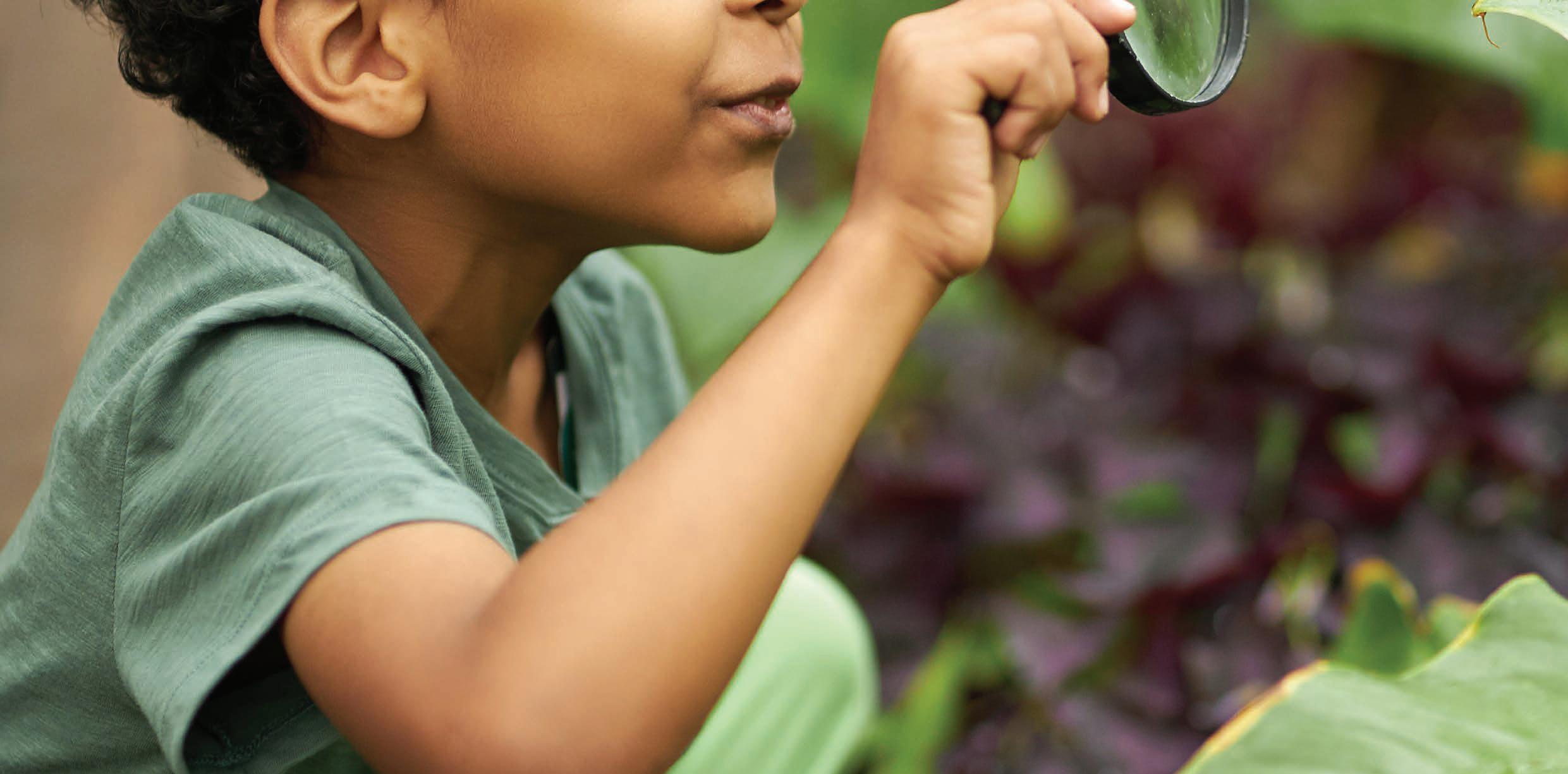




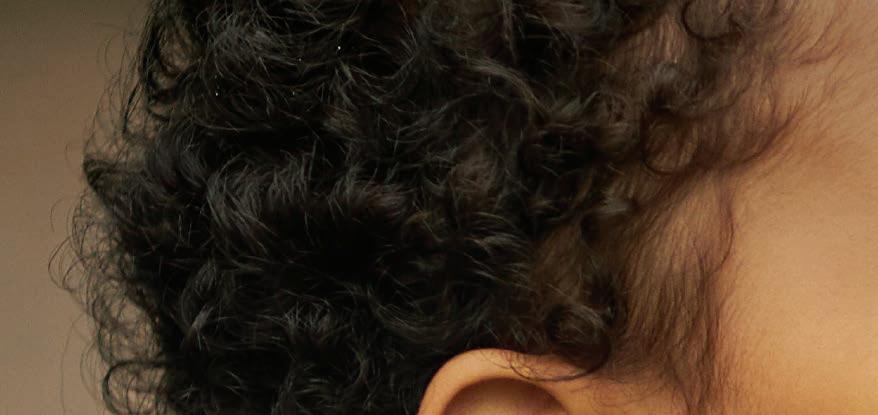








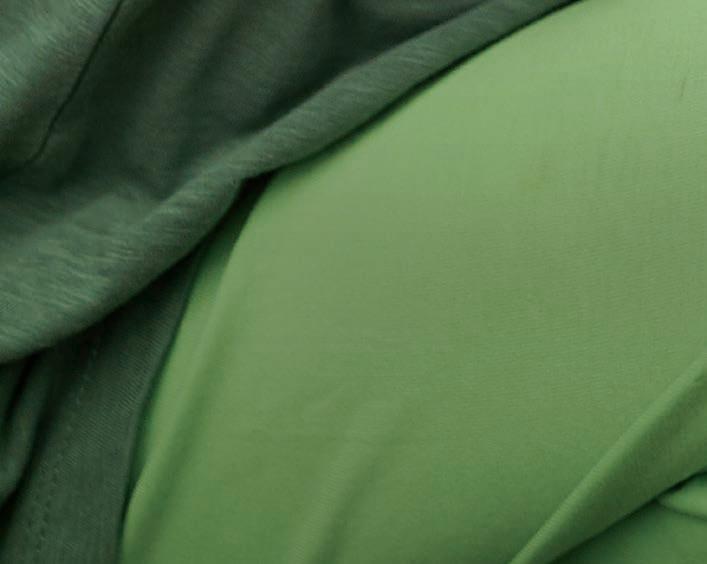

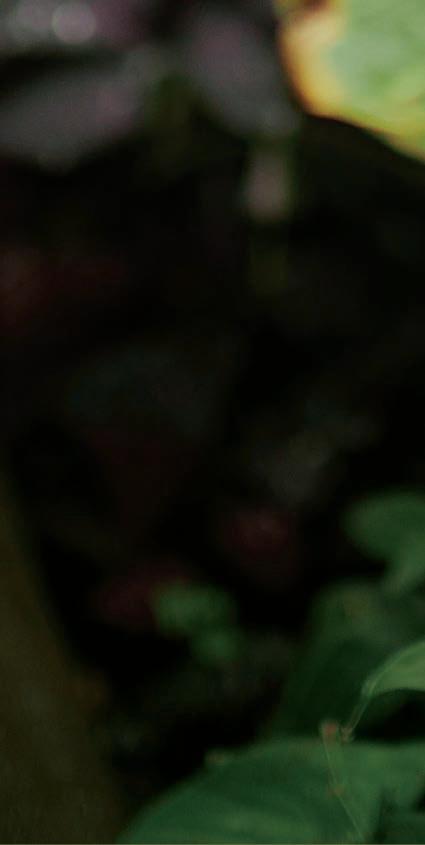





EDUCATION • HEALTH • WELLBEING • LIVING • BEAUTY • STYLE • TRAVEL MAGAZINE Inspiring Everyday Family Life cherubsmagazine.com Spring 2023 • Issue 19
I Really Give Birth?
& Bright Style This Season
Thrills & spills is ea er Did
Bold









Original series Streaming March 1 © 2023 Disney and its related entities. Subscription required, 18+
Brighter days are here, buds are starting to flourish into beautiful arrays of flowers and blossoms, and we’re finally emerging out of hiding, ready to embrace the spring.

Winter has been a chore, people… yes, I hear you and I’ve felt it with you. It’s It been a hell of a challenging time, with so much uncertainty in the economy and rising prices sending us all over the place.




But have faith that this too will pass, and there will be a way to ease ourselves out of this.

Dive into spring and open your arms to the new season and what the universe has to offer you. Be mindful of how much time you give yourself to really feel content… you deserve it.
Do you know what I’ve started doing? Nothing! I fill my free time with nothing and it’s absolutely bliss. A little bit of nothing actually gives me so much more than I could ever imagine and I’m one of the most sociable people I know!


Enjoy this colourful edition, which is filled with pages of articles that you will find hard to put down, and when you have ‘nothing’ to do, you can pick it up and take it all in.















Happy spring my loves, and may this new season be filled with everything that your soul needs.
Peace, love & blossom
EDITOR IN CHIEF Contents Spring 2023 • Issue 19 Feaures 14 The impact of young children on marriage 16 Did I really give birth? 37 A journey to better sleep 50 5 minutes with Lorna Hayward In is ed i 6 Thrills and spills with Daddy & Dad 8 Easter treats 28 Supporting children with autism 45 The ultimate breakfast smoothie A ta e 12 Parent life 25 Education 36 Health & wellbeing 42 Living
While we take every care to ensure details are correct the publisher will take no responsibility for errors or omissions. Readers are advised to check information published with individual advertisers and take legal advice where appropriate before entering into any transactions. Where prices or dates are quoted they are correct at the time of publication and may be subject to change. Unless specifically stated the publisher does not endorse any product or service appearing in the magazine. No part of this magazine may be reproduced without the prior permission of the publisher. To advertise in our next issue email info@cherubsmagazine.com or call 020 8154 3664 Follow us on social media for regular updates @CherubsMagazine Sev x cherubsmagazine.com Cherubs Magazine Catch up on past issues of Cherubs Magazine online at
Style Editor: Antonia Sanchez–Toomey Healthy Food Editor: Christianna Karaolis Designer: Chris Webb Printers: The Roma Group
Marvel’s Moon Girl and Devil Dinosaur now on Disney+
What’s On This Spring
Easter Eggstravaganza
Visit Blenheim Palace for a perfect family day out during the Easter weekend. Hop along to the Walled Garden to enjoy a whole host of egg-citing activities including circus skills, balloon modelling, bubble performances, bungee trampolines and a travelling vintage variety show, not to mention appearances from none other than the Easter Bunny throughout the weekend too.
When: 7-10 Apr 2023
Where: Blenheim Palace blenheimpalace.com
Especially recommended for very young children, join the Tales team for a fun and interactive sensory session with an egg-stra special Easter theme. A brilliant and immersive opportunity for children to really get involved in true Tales from the Shed fashion!



When: 14 Apr 2023
Where: Chickenshed chickenshed.org.uk
The ‘Not So’ Grimm Twins
A (f)un-expected family adventure, where fairytales really do come true. Roll up one and all, to hear the fabulous Brothers Grimm fairytales like never before…
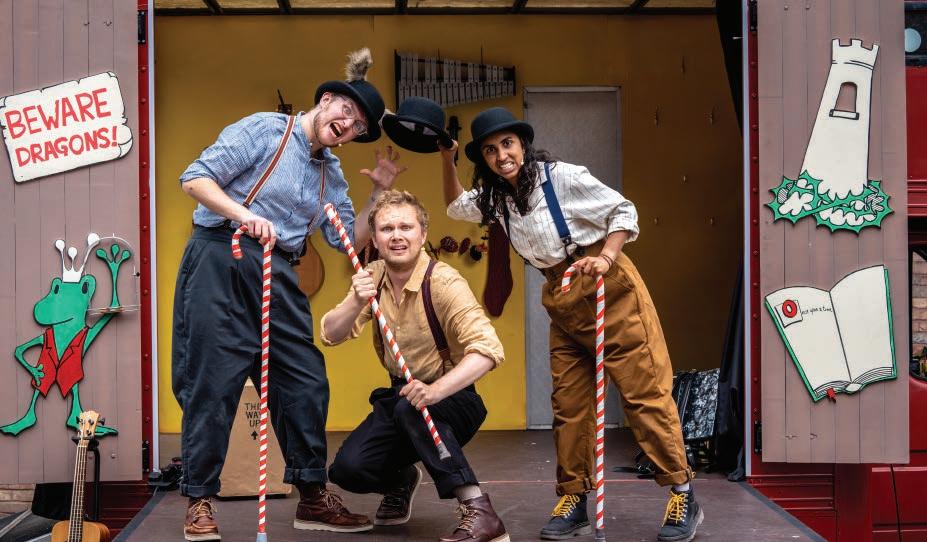
When: 11-15 Apr 2023
Where: Lyric Hammersmith Theatre lyric.co.uk
The Lindt Gold Bunny Hunt
Seek out the Lindt gold bunny and discover the stories of fascinating people who visited, lived and worked at Hampton Court Palace.
Run free in the 60 acres of Henry VIII’s gardens to find the hidden Lindt gold bunny statues. Match up the name of the important palace character on the trail to the red ribbon on the bunny statue at each location. With each Lindt gold bunny you find, you’ll uncover a fascinating story. Can you find them all?


When: 1-16 Apr 2023
Where: Hampton Court Palace hrp.org.uk/hampton-court-palace
020 8154 3664 4 | Cherubs Magazine WHAT’S ON
Easter Egg Hunt
Head to London Zoo for an Easter egg trail with a difference! Someone (we’re looking at you, Easter Bunny) has hidden very special Easter eggs around the Zoo. But they’re no ordinary eggs! With birds, reptiles, fish and butterflies among the amazing egg-laying creatures. Not only that, but clues have been left to the location of a secret golden egg! Can you help them crack the code?
When: 1-16 Apr 2023
Where: London Zoo londonzoo.org
Marty & The Party
Marty is heading to the best party there has ever been in the history of ever. Follow them there for an adorable, cheeky show about fun, friendship and finding your groove.

When: 7-8 Apr 2023
Where: Southbank Centre southbankcentre.co.uk
Gunnersbury Park and Museum
There is so much going on at the museum this Easter that you have to get yourselves down to do at least one thing.
• Free Family Easter Bunny Trail – 1-16 Apr 2023



• Make & Take: Paper Flowers and Spring Plants – 12 Apr 2023
• Printing Creative Creatures – 22 Apr 2023


Where: Gunnersbury Park visitgunnersbury.org
Peter Rabbit Easter Adventure
Through a magical mix of live performance and puppetry, the world of Beatrix Potter will come alive this Easter as you help Beatrix on a mission to rescue Jemima Puddle-Duck from the clutches of Mr McGregor. You will be transported back to a Covent Garden of old, teeming with fresh flowers, fruit and vegetables. Along the way you will meet Peter Rabbit, Benjamin Bunny, Mrs. Tiggy-Winkle and enjoy a few surprise encounters!
When: 21 Mar-16 Apr 2023
Where: Covent Garden
Peterrabbiteasteradventure.com
Superworm Trail at Kew Gardens
This Easter at Kew Gardens, join Superworm for a new adventure with all the heroes from the best-selling book by Julia Donaldson and Axel Scheffler. Set out on a journey through the plant and animal kingdoms, against the magical backdrop of our gardens in spring.

When: 1-16 Apr 2023
Where: Kew Gardens kew.org

WHAT’S ON cherubsmagazine.com Cherubs Magazine | 5
Thrills And Spills With Daddy & Dad
Instagram: @daddyanddad Website: daddyanddad.co.uk
Today we’re flying the flag for the UK’s independent attractions and days out. We’re all feeling the pinch right now, aren’t we? As a family with expensive teenage kids (with equally expensive tastes and expectations), we know the dreaded pinch feeling well. But, our family love spending time together at weekends and there’s nothing better than an adventurous day out. Over the last year or two, we made it our mission to seek out the UK’s best-value, independent days out. Here’s our top five suggestions!
1. Tropical Birdland
Desford, Leicestershire
• Adults £9.95
• Child £6.75 (under 4s free)
Tropical Birdland is a real hidden gem of a place. Set amid lush, Leicestershire woodland, it’s home to thousands (no

exaggeration) of very friendly, inquisitive, colourful birds. As you navigate the woodland path around Tropical Birdland, the birds’ enclosures are accessible, meaning their human guests can literally get inside with the birds for a cuddle. It’s an extraordinary, therapeutic and emotional experience and one we’ll never forget. Plus, it’s only about £30 for a family of four.
2. Fantasy Island
Skegness, Lincolnshire
• Free entry
• Unlimited ride wristbands from £14.50
Fantasy Island is one of the UK’s last remaining ‘free entry’ theme parks, which is marvellous for members of the family who prefer to stand with the bags, rather than whizz and scream around in the air. Visually, it’s a very impressive place, with huge, brightly painted rollercoasters – the size of which are only matched by larger attractions like Blackpool Pleasure Beach and Alton Towers and visible from miles and miles away. We tried all the big rides,

020 8154 3664 WHAT’S
6 | Cherubs Magazine
ON
including The Odyssey and Millennium – the park’s enormous, looping rollercoasters. Bizarrely, beneath the huge rollercoasters and towering flat rides, Fantasy Island is also home to a sprawling market, with all your classic seaside tat – great fun for a mooch around and a giggle.
3. Oakwood Theme Park
Narberth, South Wales
• Season tickets from £56
Oakwood Theme Park is Wales’ biggest tourist attraction, bringing World-class rollercoasters and water rides to the heart of South Wales. It’s a long drive, granted from most of the UK but it’s a fantastic theme park with enormous, exciting rides; not least Drenched – the UK’s (and possibly the world’s in my opinion) largest, steepest and fastest water ride. Believe me when I tell you it lives up to its name – we were literally soaked from head to toe!

4. Twinlakes and Wheelgate Theme Parks
Melton Mowbray and Newark, respectively
• Adult and children from £10.15

• Toddler from £5.10
Twinlakes and Wheelgate are ‘twinny’ theme parks in the East Midlands, about an hour-or-so north of London and east of Birmingham. I say twinny with a pinch of salt – they’re both beautifully landscaped and similar but Wheelgate’s amazing waterpark sets it aside from anywhere else we’ve seen in the UK. Its waterpark is huge – by far the largest of its kind here. Expect slides, fountains and huge water buckets that spill all over the kids beneath. Both parks offer fantastic value for money and they’re perfectly placed for a weekend away in the countryside. We’d suggest Twinlakes for younger guests and toddlers, and Wheelgate for families with older kids – up to about the age of 13.
5. Waterworld Leisure Resort
Stoke on Trent
• Tickets £23
Waterworld in Stoke is the UK’s largest indoor waterpark. It boasts over 30 different water rides, each offering a
unique and interactive (and often quite unpredictable) experience. Our fave rides are Stormchaser – a colourful, twisting water slide with whirlpools and space-bowls (imagine whizzing around and around in a huge plastic bowl, only to plop out through a hole in the middle), Black Hole (pretty much what you’d expect and very fast) and Thunderbolt – the UK’s first ever trapdoor drop water flume. Trap door you ask? Well, the floor quite literally disappears from under your feet with a 15m almostvertical drop beneath (and a screaming dad whizzing down at an inhuman pace, naturally). Waterworld offers a genuinely unique, thrilling experience.

WHAT’S ON cherubsmagazine.com Cherubs Magazine | 7
Photo credit: waterworld.com
Easter Treats
By Sasha @hungry_little_bakers
Sheep Muffins
These cute muffins are almost too cute to eat. They are egg free so perfect for cooking with little ones – no cracked eggs on the floor or fishing out broken shell! They are lower in sugar than standard muffins but with the icing and marshmallow ears they definitely still feel like a sweet treat. Pre-weighing the ingredients makes life easier when baking with little ones.
Ingredients
• 1 ½ cups self-raising flour
• ¼ cup caster sugar
• ⅓ cup melted butter
• 1 ½ tsp baking powder
• ⅔ cup milk
• Rind of 1 lemon
• Juice of ½ lemon
To Decorate
• 60g Icing sugar
• 60g cream cheese
• Edible eyes
• 6 small chocolate eggs, halved
• Mini marshmallows
Method
1. Preheat oven to 200C/180C fan.
2. Adults: Melt the butter in a microwavable bowl. Leave to cool slightly to ensure it is safe for little hands.
3. Let your little bakers pour the flour, baking powder and sugar into a large mixing bowl. Mix well.
4. Help them to carefully pour in the melted butter and milk. Add the lemon juice and rind.
5. Mix until all the ingredients are combined.
6. Ask your little chef to place paper cases in the muffin tray and then help them to spoon the mixture into all 12 cases.
7. Pop into the oven for 18 minutes until golden and a cake flour, baking powder and sugar comes out clean.
8. Meanwhile, sieve the icing sugar into a bowl and combine with the cream cheese and whisk well until smooth and slightly thickened.
9. Once the baked have cooled, let your little ones spread the icing over the muffins and then stick on the sheep faces (the halved mini choc eggs).
10. Let them have fun sticking the mini marshmallows all over the muffin and adding the eyes.

Top Tip
These are best eaten on the day but you can keep them in an airtight container for up to three days.
020 8154 3664 SPRING 8 | Cherubs Magazine
Easter Chick Biscuits

Ingredients
• 200g plain flour
• 150g soft butter
• 3 tbsp Caster sugar
For Decorating
• 50g icing sugar
• 50g cream cheese
• Dessicated coconut
• A drop of yellow food colouring
• Choc chips
• Dried apricot, chopped into triangles (or orange fondant)
Method
1. Preheat oven to 180c
2. Ask your little ones to cream the pre-weighed sugar and butter together in a bowl. Add the flour and mix thoroughly. Use your hands to squish into a ball. Wrap in clingfilm and pop into the fridge for 20 minutes.
3. Ask your helpers to sprinkle flour on the work surface and roll out the dough. Use round cookie cutters to create the biscuits. Place on a greased baking tin and bake for 12-15 mins until golden brown. Let them cool completely before decorating.
To Make The Buttercream
1. Sieve the icing sugar into a bowl and mix with the cream cheese.
2. In a separate bowl, add a few splashes of food colouring to the desiccated coconut.
3. Let little ones enjoy spooning the icing onto the biscuits, then sprinkling the desiccated coconut over the top.
4. Let them stick on the chocolate chip eyes and orange beaks.
The Cutest Bunny Pizzas
Simply slice muffins in half, toast them under a medium grill then spread on tomato sauce or puree. Sprinkle on a little oregano and grated cheese. Pop under the grill until golden and the cheese has melted. Decorate with carrot slices, sweetcorn teeth, black olive noses and pea eyes.

Eggcellent Idea!

Here’s
your
SPRING Cherubs Magazine | 9
a lovely snack idea that you could fill with
little ones’ favourite things to eat. Hide little chicks amongst the snacks to add a little more fun to your day!
The Ultimate Weekend Green Bag For All The Family
By Alex Parrish - achievinggreenness.com
The climate crisis is real. It is already here. And it requires us all to stand up, think differently, change behaviours, and take action. Our kids depend on us to make a difference now, so the planet they inherit from us isn’t unsavable. Making a difference can often seem like an
overwhelmingly huge task, but changing our thinking and behaviours is a lot easier than you’d imagine, and it only takes a few small steps to start making a difference. If we start small today we can only get better and better, so let’s look at ‘greenifying’ some of the contents of your handbag,
Weekend Bag
The weekend bag itself can be the first swap when traveling on holiday or just escaping for a long weekend away. By combining coolness, quality, and sustainability with a classic weekend bag that ticks all the right eco-credential boxes, this weekend bag from Elvis and Kresse is the perfect swap. It’s made from decommissioned fire hose and rescued military grade parachute, and is a fabulously cool and long-lasting way to greenify your overnight bag.
elvisandkresse.com


Stainless Steel Razor

The toiletry bag is next on the list and a great place to start making sustainable eco swaps. You could try going a bit old school with your shaving routine – do a green-swap and invest in a high quality stainless steel razor, designed to last a lifetime and provide a high quality shaving experience. Swapping to a highquality metal razor will not only help to get rid of plastic in your bathroom and beauty routines, but will also save you money as they last a lifetime and you will only need to buy replacement blades. These are also amazing for her when she borrows it to shave legs and armpits too! theenglishshavingcompany.com
overnight bag, and kids’ travel bags. There are now so many fabulous and eco-friendly options and alternatives to choose from, that greenifying and organizing your life to help look after the planet becomes a much more enjoyable challenge.

Shaving Foam
HimContinuing on with the shaving routine, once you’ve invested in a quality stainless steel razor, look at swapping your environmentally unfriendly can of shaving foam to a ‘refillable’ classic solid shaving soap and shaving brush. Not only will your toiletry bag become immediately more green but it will also look pretty dam cool too!

theenglishshavingcompany.com

Reusable Cup
To finish off this simple set of green weekend bag swaps, make sure you pack a quality reusable coffee cup. As a nation we all seem to love a good cuppa, but this is resulting in mountains of disposable tea and coffee cups when we are out and about and getting our hot drink fixes. To play your part in helping prevent this single use waste stream, investing in a good quality stainless steel reusable travel mug. You be preventing single use waste and saving money, as so many places now offer discounts when using reusable mugs. moonbottles.co.uk

020 8154 3664 10 | Cherubs Magazine SUSTAINABLE
Let’s take a look at some greener swaps for his weekend bag…
Now let’s turn our attention to green swaps for her weekend bag…
Hot Water Bottle



When summer still seems a long way off, I always like to pack a hot water bottle in an overnight bag for the colder months to keep my toes toasty warm in bed. Check out this fabulous eco-friendly and plastic-free version which is super snuggly and perfect for those cold days when we all need something to keep us warm. And with the current prices of central heating it is an essential in the
Deodorant
Let’s talk toiletries… swapping to more environmentally friendly deodorant can sometimes seem more effort that it is worth! But we suggest giving this sustainable plastic-free deodorant from Wild a try as we think you’ll be pleasantly surprised. It contains no nasty chemicals, no plastic, is ethical, refillable, and smells divine… what’s not to love?


wearewild.com

























Reusable Baby Wipes



Disposable baby wipes are a menace. They are made from plastic, full of chemicals, cannot be recycled, clog drainage systems, and kill wildlife. But there is a very simple green swap to be had here by moving away from these nasty chemical-filled wipes and instead using reusable washable organic cotton wipes with essential oils. Reusable wipes are great to throw in a kids change bag or travel bag, and the different colour boxes for bum wipes means you can keep them separate from the face & hand wipes too. They wash brilliantly, smell amazing with the essential oils, and save you money while saving the planet. cheekywipes.com
Crayons
Alongside all the tech, some good oldfashioned crayons and a colouring book are essentials in every kids bag. But you may not realise that most crayons made of paraffin, a by-product of petroleum, and not really something you want to be giving your kid to draw with. They aren’t great for the environment either as they are not biodegradable and they turn into a pretty unpleasant waxy sludge in landfill… So greenify your kids bag with these natural, vegan-friendly crayons instead, made from sustainably sourced plantbased waxes and food-grade pigments. thenaturalcrayon.co.uk

Nail File








A handbag and weekend bag staple for so many of us is a nail file, and now you can greenify this essential item with one made out of glass. Not only is it better for the planet and more hygienic, but it is also much kinder on your nails. And you only need to buy it once as they don’t wear out. A big green bag tick! freshtherapies.com
Makeup
Continuing with greenifying your toiletries, let’s talk about makeup, which can be a bit of a controversial topic. So many of us love it, can’t imagine living without it, and can’t imagine swapping from our tried and tested go to brands and products, but so many brands are far from environmentally friendly or ethical. So, when the time comes to replace your favourite mascara or foundation, we recommend taking a look at ZAO as it offers natural, organic, vegan, and refillable makeup which is a much greener and ethical alternative.
zaomakeup.com

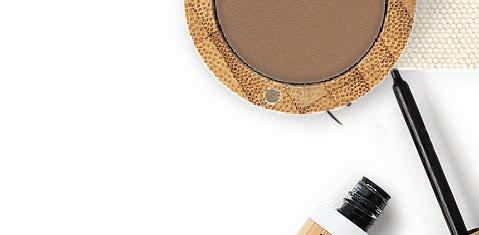



Her Kids
Snack Containers
Snackage is always important to have with you when out and about with kids, and these beautiful recycled stainless steel food containers are the perfect zero waste food accessory to throw in your kid’s rucksack. They also help you get rid of unnecessary plastic packaging by making it so much easier to take your own snacks with you. qwetch.com

Baby Teether
One last green swap for the kids’ bags. Have you ever given much thought to the plastic baby teethers you have stashed in the change bag – apart from making sure they are clean and ready to chew? We know a teething baby will put anything in their mouth to chew, so try swapping to a more eco-friendly alternative with these beautiful plastic-free, handmade, natural rubber, non-toxic teethers. tikiritoys.co.uk

cherubsmagazine.com Cherubs Magazine | 11 SUSTAINABLE
And finally, let’s turn our attention to greenifying the contents of the kids bags…
Why Creating Rituals Is One Of The Healthiest Things You Can Do For Your Family
By Lauren Vaknine
Ritual behaviour has been a part of family and community life throughout human history, and for good reason; rituals connect us with the sacred, the natural world, and each other.

Rituals that are separate from religious practices are often known as non-rational, as in, they’re not intrinsic or necessary.
But, as a someone who follows a holistic approach to parenting, I would argue that ritual within family life is completely necessary.
You see, as humans, we’ve evolved to want to (need to) be part of ‘the tribe’. In our hunter-gatherer days, our acceptance into the tribe meant survival, and those

evolutionary survival instincts are still omnipresent within us today, even as fully evolved, modern humans.
Children still strive to be accepted into the family unit, which is why many children will take on the hobbies or interests of their parents. Take a moment to reflect on children you know whose parents are into sports, and whether their children are, and those who aren’t. Though there are exceptions, on the whole, children subconsciously choose lifestyles that are congruent with their parents’ values.
As a holistic life coach, a big part of my work focuses on helping clients heal their inner child wounding, which in turn teaches them the merits of allowing their own children to
flourish into whoever they are authentically meant to be, before we condition them out of it.
Rituals are different.
We’re not forcing our children to do something we love that perhaps they don’t; we’re helping to offer them a deep sense of acceptance and belonging in a world where community and connection is dwindling daily.
Something that always stuck with me from the Steiner approach to education and parenting, was to never tell a child “You are wrong.’ Instead, we reframe it to include the family unit as a whole: “We don’t do this.” By showing the child that the family
PARENT LIFE 12 | Cherubs Magazine 020 8154 3664
is ‘we’, it offers them a sense of belonging and shows them how our ‘tribe’ chooses to behave in a positive way. This helps the child feel that sense of belonging, which further encourages them to want to behave in that positive way because they learn that this familial behaviour fosters stability and peace within the family dynamic – if we single them out, all we’re doing is piling on the shame, which rarely leads to positive behaviour.
Rituals are essentially a way for parents to show an embodiment of their belief systems and values, in order to pass that down to the next generation.
Expert anthropologist, Prof Rebecca J Lister, says: “One of the most important features of rituals is that they do not only mark time; they create time. By defining beginnings and ends to developmental or social phases, rituals structure our social worlds and how we understand time, relationships, and change.”

We may think that we’ve lost our ritualistic nature in 2023, but I’m optimistic. Think of all the rites of passage we still value: graduations, proms, baby showers, wedding traditions et cetera. We still embrace them at large, but are we doing it enough within the home?
When something becomes ritualistic, not only does it give everyone within the family (not just the children) a sense of belonging, but it also cultivates positive memories of specific moments in time, anchoring us to those memories with fondness, so that when we draw on childhood memories, we draw on them with warmth.
Rituals are also a great way to manage stress and anxiety, according to Scott Berinato at the Harvard Business Review. Based on that evolutionary perspective I mentioned at the beginning, it turns out that rituals are a powerful human mechanism for managing extreme emotion, stress or grief.
As someone raised within the Jewish community, I’ve observed this with the Shiva, a seven-day ritual we observe after someone dies. It allows the grieving family to always have people around to care for them during that initial period of grief straight after a death.
Most cultures have their own versions of these, so let’s think about how we can integrate simple, meaningful rituals into our homes.
A great way to think about what sort of rituals you’d like to include in your home, is to consider the kind of childhood memories
you’d like your children to hold dear when they’re older. Imagine your child as a famous adult, being interviewed on a radio show, and when the host asks them about their childhood, which fragments of that childhood would you hope they take with them?
Here are some ideas of rituals you can introduce into your home:
• Birthday rituals: what ritual can you draw on each year that marks the occasion apart from how they might celebrate outside the home? Waking up early to eat cake; presenting them with a book of their year – perhaps a member of the family honouring the mother during the children’s birthdays, after all, this was her birth-day!
• Daily and weekly gatherings: in my house, we dance after dinner most nights in the kitchen, letting loose, and we always get together to have a hot cacao on Sunday nights. We all sit around the table after the kids’ baths, set an intention for our week ahead and give gratitude
• Monthly rituals: full moon rituals are a beautiful way to honour the incoming season where we can teach our children the power of letting go of anything that no longer serves us, and setting intentions for our goals
• Festival rituals: can you create a ritual that is the same each year such as Christmas Eve family night, something you do on New Year’s Day, a way to mark summer or winter solstice, or anything else relevant to your culture?
There are so many ways to bring ritual into the home. Have a think about what aligns with your family structure and enjoy integrating ritual to create a richer and more connected family life.

PARENT LIFE cherubsmagazine.com Cherubs Magazine | 13
Lauren Vaknine is a master holistic life coach, health writer, speaker and host of Reconditioned podcast. Website: laurenvaknine.co.uk
The Impact Of Young Children On Marriage: A Dad’s Perspective
 Written by the co-founders of Hank, Henry King & Gregg Stone
Written by the co-founders of Hank, Henry King & Gregg Stone
It’s no secret that children can have a huge impact on your marriage. It’s normal for couples to experience all sorts of changes when they go from being just the two of them to becoming a family. Your life goes from being relatively uncomplicated to a ton of responsibility and not a small amount of stress, almost overnight. Increased financial pressures, lack of time for one another, and tension due to lack of sleep or parenting styles can all take their toll on a relationship.
While it’s easy to focus on the negatives of adding a child into the marital mix; a child is one of the most life-affirming experiences a union can create. The shared journey of conception, pregnancy, birth and the allencompassing chaos of the early years will give you a shared bond, memories and a sense of fulfilment and achievement that is hard to surpass. It will also come with not inconsiderable challenges.
Young children can challenge long-held beliefs and traditional roles. Men may find themselves able to empathize more with their wives or be more involved in the early stages of parenting than they had ever expected. Women may be surprised to discover strength they never knew they had and take on new roles that challenge their traditional identities. Although it can be difficult for couples to adjust to these changing dynamics, it can be an essential part of creating a strong marriage in the long run.
It’s important for parents to remember that their relationship also needs attention and priority, even when the kids are in the picture. No matter how busy life gets, it is essential for couples to make time for each other and carve out moments or shared activities that don’t involve the children. A month can go by and you suddenly realise you’ve barely seen or spoken to each other,
except for arranging family logistics.
The needs of a child are relentless and all-encompassing. It’s all too easy to prioritise those and get stuck in the dayto-day firefighting, forgetting your other most important relationship, which also requires time and effort. There are small, inexpensive but powerful changes you can make to maximise your time as a couple and carve out some ‘me time’.
Limit evening screen time. We are all guilty of the soothe scroll trap but it truly brings nothing positive and steals your evening.
Agree on alternate evenings for cooking dinner so you can each take a turn exercising, having a quick drink or call with a friend or taking a good book to the bath.
Eat dinner together. A good box set can definitely be bonding but checking in
PARENT LIFE - ADVERTISING FEATURE 14 | Cherubs Magazine 020 8154 3664
with each other over dinner is far more important and there’s plenty of time for TV afterwards.
Commit to one date a month and take turns organising it. If childcare costs are prohibitive then a reciprocal arrangement with a local friend or family member is a great way around this. Say a proper goodnight to each other, discuss your day, discuss your child and other things in your life.
An unexpected text message during the day brings a little bit of dating excitement back. Not just photos of your adorable child but messages between you and your partner to keep in fun and positive.
Encouraging your other half to see their
friends is a great way to help them maintain their identity outside of ‘parent’ and allows them to blow off some much-needed steam.
Looking after yourself. Exercise, new clothes, a tidy home and eating well have an enormous impact on your self-worth, which has a knock-on effect on all of your relationships, particularly romantic ones.

Be kind. Tiredness and crossness tend to go hand in hand. Do whatever it takes not to snap at each other and if you do, apologise. Explain you’re struggling and acknowledge you’re in the wrong. If you are snapped at, don’t sulk. Try not to take it personally and be proactive as to where your partner is struggling. If you can find some laughter in there it really helps.
Website: hellohank.co.uk

Ultimately, while parenting young children can present unique challenges and requires you to find ways to compromise when disagreements arise, it certainly doesn’t have to be detrimental to a marriage. With open communication between each other, couples can come out of this stage of life with a stronger bond than ever before. After all, no matter what the kids throw at you, you are in this together.
Celebrate your love and your new addition, and remember the fun and life you had before they were around. In the words of the Beatles, love is all you need and with a new child, you will certainly have lots of that.
PARENT LIFE - ADVERTISING FEATURE cherubsmagazine.com Cherubs Magazine | 15
Did I Really Give Birth?
Beth Kitt, a midwife and mum of four found herself being asked a difficult question by a good friend of hers that truly upset her to the core. She found it so powerful that she took the topic to her socials, which is where I, as your editor Sevim, read it – and it totally touched my soul. It’s a question that I also ask very frequently and thought that every mother that’s been through a C-section needs to hear. Over to Beth...
“Do you feel like you didn’t really give birth because you had a caesarean?”.
This is a genuine question that one of my friends was asked recently. She called me, almost too stunned to express how she felt about it. But I could tell she was hurt. Hurt
that someone could even consider this.
I’ll be honest, when she told me it caught me off guard. I was shocked that this would even cross someone’s mind.
“I did give birth, didn’t I?”.
She’d called me because not only am I her friend, I am a midwife.
Without hesitation, I responded, “Absolutely! Of course, you did.”
She’d had a vaginal birth for her first baby, a “beautiful and calm water birth” as she had described it. She’d always told me how empowered she had felt after it, and how proud she was of her body.
When her second baby arrived a few years later, she’d had a caesarean. An emergency unplanned one. Her little boy was very poorly and quick decisions needed to be made in order to help him arrive safely into the world.
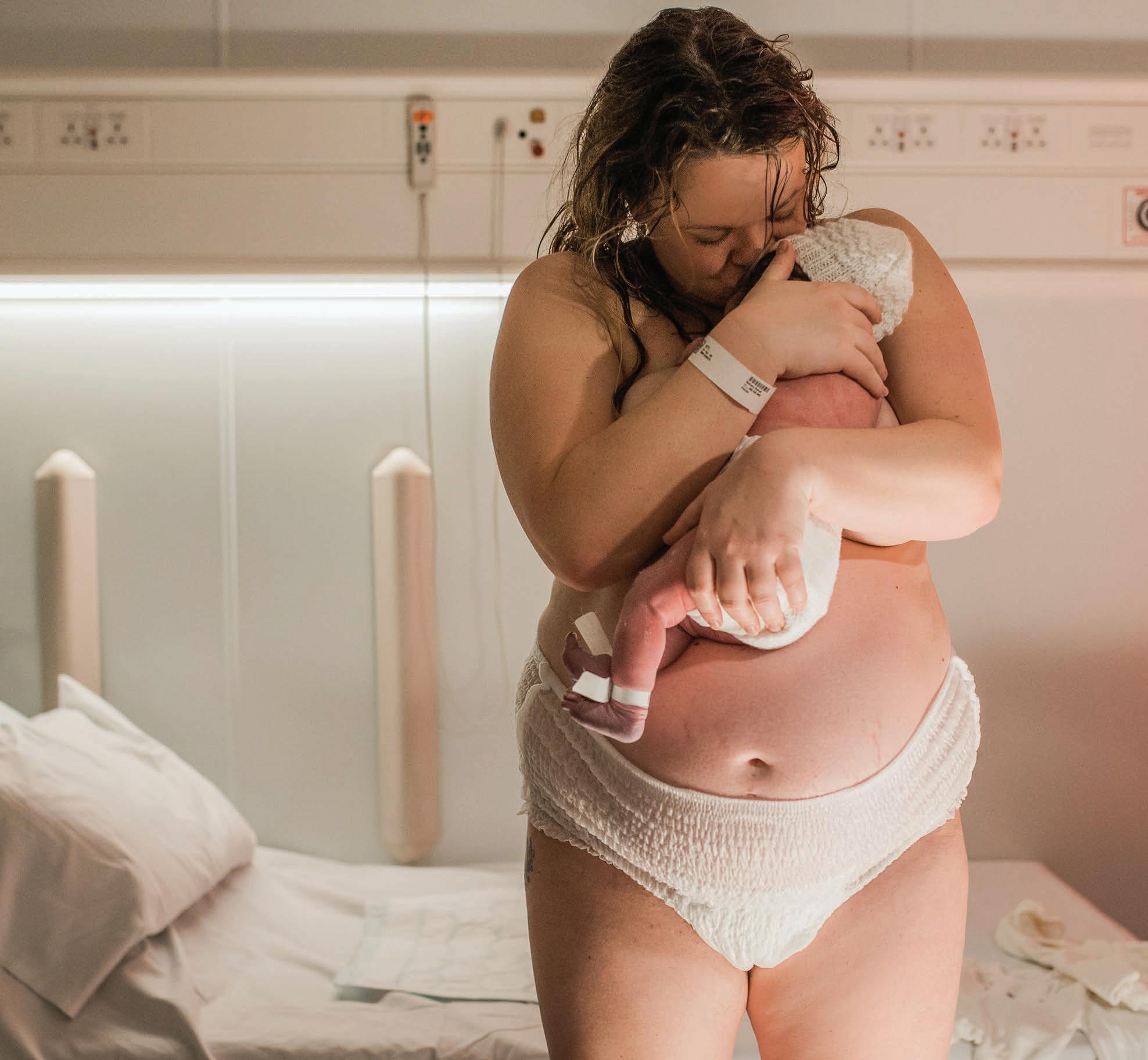
So, was her second birth any less than her first? Of course not. Did she still give birth? Absolutely!
“You should be immensely proud of yourself and your body. You went through emergency surgery to ensure that your little boy arrived safely into the world. You made a choice in that emergency situation that helped to ensure a positive outcome. You are incredible.”.
PARENT LIFE 16 | Cherubs Magazine 020 8154 3664
The definition of birth is “to produce a baby from your body”.

“Birth is to produce a baby from your body!” Let’s shout it loud for all to hear. This definition is something that we need to remind all those caesarean mothers and anyone who doubts whether a caesarean still counts as birth.
For anyone to feel like they didn’t give birth or that their birth was any less than someone else’s is truly heart breaking. To feel like they ‘failed’ because their baby arrived via their abdomen instead of their vagina is a feeling that I want no mother to feel.
Regardless of how your baby entered the world, your body very much played an active role in the birth.
You grew your baby for nine months. Your body went through so many changes for your baby.
Your body worked hard to recover while caring for a baby. Your baby was physically born out of your body – so absolutely, yes, you still gave birth.
It is so incredible what our bodies are capable of.
How hypnobirthing can help
Hypnobirthing is one of the ways you can prepare for all the things birth might throw at you. Beth is founder of The Bump to Baby Chapter, one of the UK’s leading midwife-developed hypnobirthing and antenatal resources. She saw a gap in the
market for hypnobirthing that could be used in all types of birth.
Beth wanted women to have tools and techniques to keep calm and in control regardless of if they are having an emergency caesarean or a water birth, an induction or spontaneous labour, in a consultant-led or midwife-led unit, or having a home birth. She wanted women to have knowledge of all pain relief, from breathing techniques to epidurals, and all pregnant women to feel confident and prepared as they approached their due date and to have the resources to hand to have for a positive and empowering birth. Since its launch in 2016, the chapter’s midwife-produced courses have changed the lives of thousands of women all over the world.
PARENT LIFE cherubsmagazine.com Cherubs Magazine | 17
Photo credit: Chui King Li Photography
Is Counselling For Me?
By
Seeing a Therapist can still be rather a taboo subject; it was something we used to see in movies and was usually for people from across the pond. The subject of seeking professional help can be something that you do not openly tell your friends and family in fear of being judged. Thankfully, however, there has been a shift in understanding mental health and the importance of well-being.
Are you feeling stuck? Wanting to change and not knowing how? Do you want to feel safe, be emotionally vulnerable without fear of being judged, explore your options and develop the skills to handle various life challenges?
Contrary to popular opinion, you do not need to have a diagnosed mental health problem to seek professional support. Embarking on a journey of self-discovery can be daunting and challenging but will also be extremely beneficial.

Seeking help in itself is very brave, but also very enlightening. The first step is often the hardest. It can fill you with questions of where do I start? Where do I go? Who do I see?
If you have been thinking about getting counselling then perhaps this FAQ today can help with making that decision a little bit easier.
How do I know I need counselling?
Only you can decide whether you want to try counselling, but if you are struggling to cope and are finding day-to-day life difficult, you may benefit from professional help. Just talking to someone confidentially, who is not a friend or a family member, can make all the difference. Counselling provides a regular time for you to explore your feelings and talk about any problems that you are experiencing. A counsellor can support you through your journey and support you to move forward and get the most out of your life by helping you to process your thoughts and feelings, and providing you with lifelong tools to support you.
Where do I start?
As with any first in our lives, finding the right counsellor can be an overwhelming experience. You will come across several online profiles, but how do you know who to choose? Perhaps you can ask yourself the following questions:
• Are they qualified?
• Are they registered with a governing body?
• Do I feel comfortable with them?
• Do I feel safe in their working environment?
Your counsellor will be someone who you will share your inner world with, where you are most vulnerable and therefore they need to be the right fit. Most counsellors offer a free 10 to 15-minute telephone consultation. This is a perfect opportunity to see if the counsellor fits for you. I advise my prospective clients that it can almost feel like an interview process where you need to speak to more than one person until you feel the right connection and feel comfortable. Please be reassured that if you choose not to start your journey with any particular counsellor, they will not be offended. Any counsellor would want you to find the help that you need.
There are some useful websites that you can search for a Counsellor: www.counselling-directory.org.uk www.psychologytoday.com www.bacp.co.uk/ www.mind.org.uk
Alternatively, you can self-refer to NHS via www.lets-talk-iapt.nhs.uk
You have found a counsellor you feel comfortable with, what is next?
Usually your counsellor will ask you to attend an assessment. This is a good time to meet your counsellor face to face. During the assessment, your counsellor will ask you about the issues you are experiencing. The assessment time is usually 50 minutes. During your assessment, you will be asked questions about what has brought you to counselling and a brief look into history. During the assessment, it is common to
agree on timescales, days of the week suitable for you and some goals that you would like to work towards. Your counsellor will ask you to sign a basic contract at the end of this first assessment to agree on frequency of your appointments and confidentiality.
How long should I expect to have counselling for?
The length of your sessions will very much depend on your unique circumstances. I usually start with 6 or twelve sessions followed by a review. Psychodynamic, humanistic therapies tend to be longer term and can last for many months, even years. Once you start your sessions, you embark on a journey of self-exploration. You may think that you know what the issue is and then something else may come up. In summary, it is best to keep an open mind over how long you will be in counseling.
Will my sessions be confidential?
Yes, counselling sessions are confidential. Your counsellor is ethically bound to keep what you share private.
Registered counsellors are obliged to have a supervisor overseeing their work, to ensure they are maintaining a high level of assistance to their clients. While they may discuss you to their supervisor, your identity would not be divulged and the supervisor would also be under oath to protect any information that is shared.
I have more questions that I could not find the answers for?
That is totally fine, please get in touch with any questions you have and we will do our best to answer them.
Serif Ali is a humanistic integrative counsellor who works with individuals, young adults and couples. Integrative means that she is trained in several types of therapy that can blend to best match your needs. This form of therapy is designed based on what the client is bringing to the sessions.
020 8154 3664 18 | Cherubs Magazine
LIFE
Serif Ali - if you would like to book a session with Serif you can contact her at serif.m-ali@outlook.com or via Instagram @your_conscious_journey


YOUR NEW BEST FRIEND So much more than just a pillow! A pillow that can make that much difference! How? hello@bodibuddi.com www.bodibuddi.com Fully supportive of your whole body. The microbeads adjust to support your limbs & joints. Feel more relaxed & weightless. bodibuddi Feel Refreshed Ache Less Sleep Better Relax More
Style Ed



Bold and Bright just in time for spring









Tailoring, brights and colour blocking are a big story for spring, so we’ve put our favourite pieces together in this edit to bring you a huge dose of much-needed dopamine.









Pink











 BY:
BY:


























































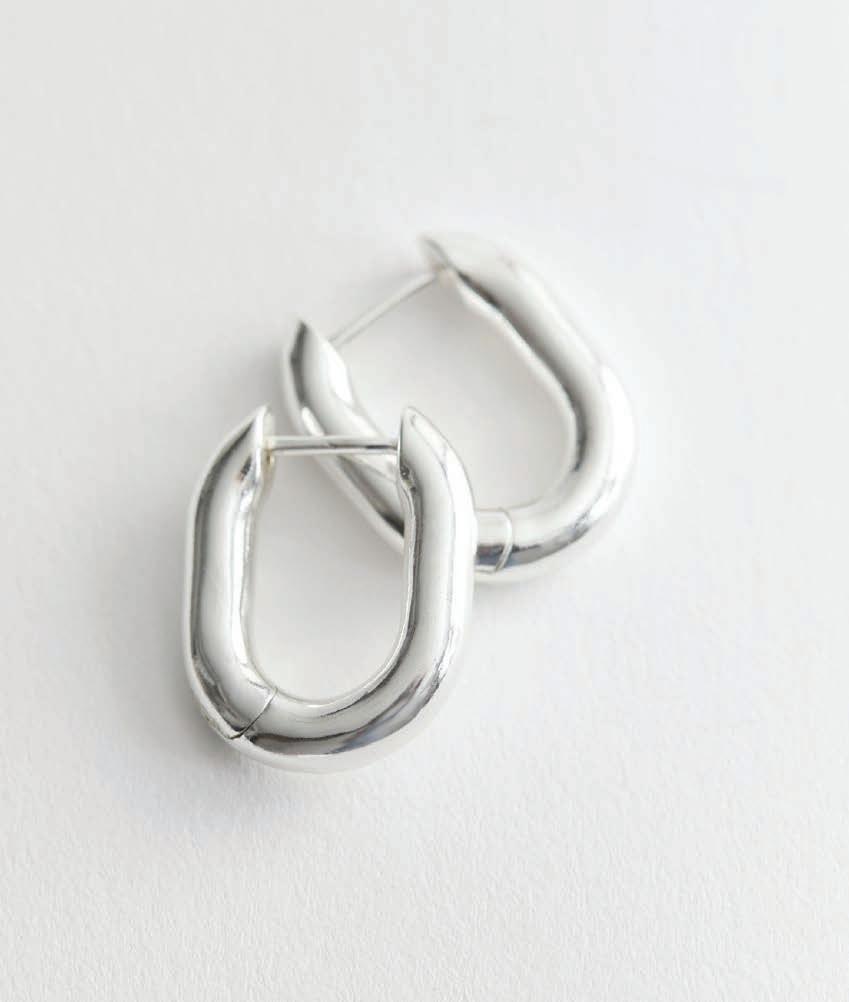


020 8154 3664 STYLE
20 | Cherubs Magazine
A tonia Sanchez-T mey
Pink Blazer
Pink Tailored Trousers £24
H&M
Shoulder Bag Pink £14
Uniqlo
Recycled Striped Jumper
Crepe Drawstring Trousers £29
M&S & Other Stories
Cobalt Blue Nail Polish
Cru Pastel Trainers
Silver Converse High Tops £40 Office
Bright Blue Dress £79 Cos






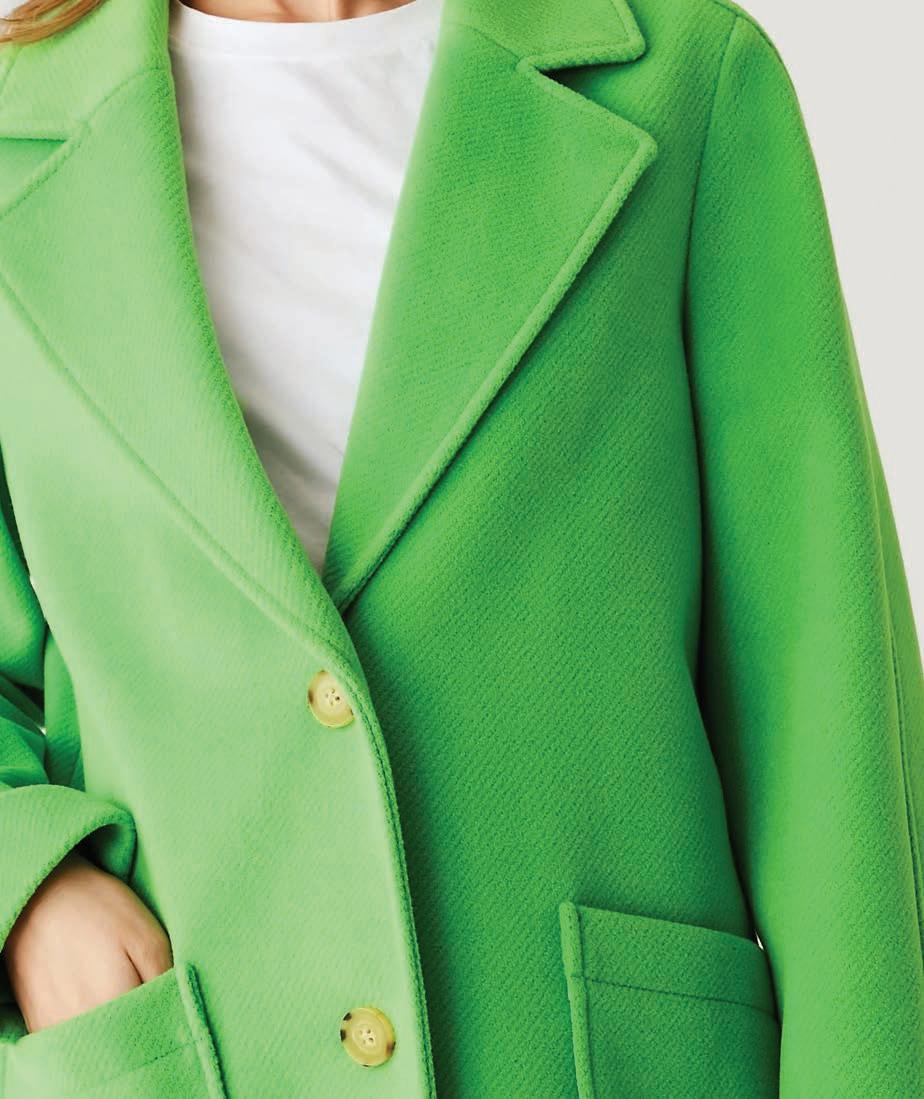



























































Green Orange STYLE Cherubs Magazine | 21 Instagram: @antonia_sanchez_toomey Single-breasted Coat Emerald £69 M&S Earrings £195 Monica Vinader Croissant Waisted Cardigan £69 Cos Crossbody Bag £169 Arket Flared Trousers £90 Boden Bag Suit Jacket £79 Mango Knitted Jumper £20 H&M Long Knit Dress With Open Back £35 Zara
Spr g
Reading
Hop, skip and jump into reading this spring with Pickled Pepper

The Hugasaurus
By Rachel Bright and Chris Chatterton –2-4 years


When Hugasaurus finds a playground, some new friends welcome her to their games. But it isn’t long before the other little dinosaurs start to squabble. Can Hugasaurus bring her new friends back together using the magical power of kindness? The perfect picture book to help children learn to be kind to one another.
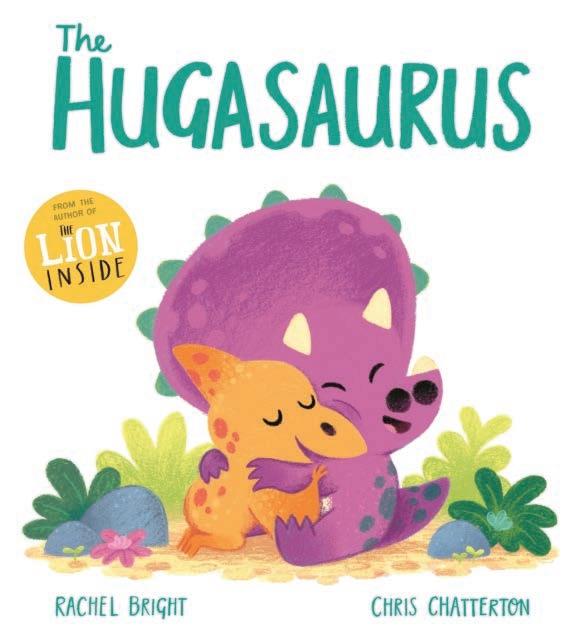
Easter Sound Book
By
 Usborne
Usborne






























































































– 2 years and under

As the Easter Bunny roams around the countryside, she meets ducklings quacking in the stream, lambs going baa in the meadow and baby birds chirping in the trees. She also leaves eggs to hide wherever she goes, creating a simple spotting activity to enjoy.


Babies& Toddlers
I Really Really Love You So


 By Karl Newson and Duncan Beedie –3-6 years
By Karl Newson and Duncan Beedie –3-6 years
From climbing a mountain, to wrestling with crocodiles, this story is packed with extreme and exciting ways to show a special someone that you love them. But sometimes the simplest way to show that you care is the best way.
Cat Kid Comic Club 3





 By Dav Pilkey – 7-9 years
By Dav Pilkey – 7-9 years
The kaleidoscope of art styles, paired with Pilkey’s trademark storytelling and humour, fosters creativity, collaboration, independence, and empathy. Readers of all ages will be inspired to dream up their own stories and unleash their own creativity as they dive into this pioneering graphic novel adventure.


020 8154 3664 READING 22 | Cherubs Magazine
There’s A Beast In The Basement!
By Pamela Butchart – 7-9 years


Chaos and mayhem reign as Izzy and her friends take on another hilarious (mis) adventure. There’s no such thing as an ordinary day at school when they’re around…


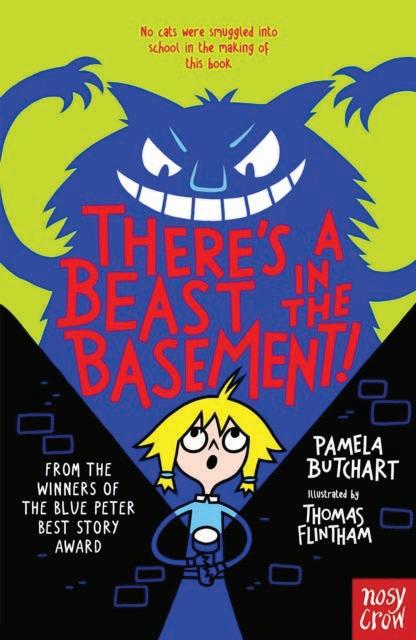


Early years



Paper Boat, Paper Bird























 By David Almond – 10 years+
By David Almond – 10 years+




Kyoto, Japan. Mina feels so weirdly at home. She is herself, but it’s like there’s another Mina waiting to be discovered or created here. On a crowded bus, a woman makes a paper boat and a paper bird and gives them to Mina. These gifts carry her into a wondrous world that is both ancient and brand new. A beautifully illustrated short story for lovers of magical realism.
This Book Kills




 By Ravena Guron – 13 years+
By Ravena Guron – 13 years+
























A high school killer is slaying their victims in line with a student’s short story ideas in this gripping and original YA thriller, perfect for fans of Holly Jackson and Karen M. McManus.

The Wildstorm Curse



 By Eve Wersocki Morris – 9-11years
By Eve Wersocki Morris – 9-11years

A heartwarming and spine-chilling tale of friendship, bravery, and the intoxicating magic of storytelling. Perfect for lovers of mystery, fantasy and spooky tales!

10 Middle Ln, Crouch End, London N8 8PL 020 3632 0823 • pickledpepperbooks.co.uk






































Instagram: @pickledpepperbooks
Twitter: @pickledbooks





























cherubsmagazine.com READING Cherubs Magazine | 23
Books to get them reading for pleasure
The Best Books To Read This Spring
Spring’s warmer weather makes it the perfect time to sit outside and read a great book (or two). Writer Sara Bragg picks her favourite reads.
Truly, Darkly, Deeply
 By Victoria Selman Quercus £7.49
By Victoria Selman Quercus £7.49
The One That Got Away
By Charlotte Rixon Aria £7.49
Oh, Sister
By Jodie Chapman Penguin £15.00
A dark chilling psychological thriller that will keep you reading past bedtime. Twelveyear-old Sophie and her mother, AmeliaRose move to London from Massachusetts where they meet the charismatic Matty Melgren, who quickly becomes an intrinsic part of their lives. But as the relationship between the two adults fractures, a serial killer begins targeting young women with a striking resemblance to Amelia-Rose. When Matty is sent down for multiple murders, questions arise about his guiltquestions which ultimately destroy both women. Nearly twenty years later, Sophie receives a letter from Battlemouth Prison informing her Matty is dying and wants to meet. It looks like Sophie might finally get the answers she craves. But will the truth set her free – or bury her deeper?
A poignant compelling story of first love, of the mistakes people make, and the lengths they’ll go to put things right. Perfect for fans of Colleen Hoover and Rosie Walsh, this is an emotional read full of nostalgia. Benjamin’s world is turned upside down the day he meets Clara. Instinctively, he knows that she is his person and he is hers, but the events of one devastating night will take their lives in very different directions. Twenty years later, a bombing is reported in the city where Clara and Ben met, and she is pulled back to the first love she could never forget. Searching for Ben, Clara prays that twenty years of silence is about to end. But is it too late to put right what went wrong?
Happy Place
By Emily Henry Penguin £13.19

The Garnett Girls
 By Georgina Moore HQ £9.99
By Georgina Moore HQ £9.99
A big-hearted debut of love, sisterhood and what it means to be home. Forbidden, passionate and all-encompassing, Margo and Richard’s love affair was the stuff of legend– but, ultimately, doomed. When Richard walked out, Margo locked herself away, leaving her three daughters, Rachel, Imogen and Sasha, to run wild. Years later, charismatic Margo refuses to ever speak of her painful past. But her silence is keeping each of the Garnett girls from finding true happiness. Can children ever be free of the mistakes of their parents?
From the author of one of BookTok’s most popular reads for 2022, Emily Henry returns with a new gloriously feelgood novel of fake relationships and awkward holidays. Harriet and Wyn are the perfect couple –they go together like bread and butter, gin and tonic, Blake Lively and Ryan Reynolds. Except, they broke up six months ago. And they still haven’t told anyone. Which is how they end up sharing a bedroom at the cottage that has been their yearly getaway with their best friends for the past decade. For one glorious week they leave behind their lives, drink far too much wine and soak up the sea air with their favourite people. Only this year, Harriet and Wyn are faking it. But how can you pretend to be in love with someone – and get away with it –in front of the people who know you best?

A thoughtfully, intricately crafted tale of breaking free and finding one’s voice, this addictive novel follows three very different women whose lives are intertwined by religious subservience. Jen, Isobel and Zelda are all linked through the same religious community, but soon they will discover they all share something else much more important – a sisterhood. But can that be enough to ever let them really be free?

Lessons in Chemistry
 By Bonnie Garmus Transworld £7.99
By Bonnie Garmus Transworld £7.99
Waterstones Author of the Year, Bonnie Garmus brings us a smart, funny, joyous and powerful debut set in the 60’s. Unconventinal chemist Elizabeth Zott is not your average woman. She falls for Calvin Evans, a brilliant Nobel-prize nominated grudge-holder. True chemistry results. But like science, life is unpredictable. Which is why a few years later, Elizabeth Zott finds herself not only a single mother, but the reluctant star of America’s most beloved cooking show Supper at Six. Elizabeth’s unusual approach to cooking (‘combine one tablespoon acetic acid with a pinch of sodium chloride’) proves revolutionary. But as her following grows, not everyone is happy. Because as it turns out, Elizabeth Zott isn’t just teaching women to cook. She’s daring them to change the status quo. This book will win your heart.
020 8154 3664 24 | Cherubs Magazine SPRING - ADVERTISING FEATURE
Instagram: @sarabraggwriter Website: sarabragg.com
Exciting Changes For An Enfield Secondary School
Enfield Headteacher’s big plans to transform Broomfield School with new name and uniform as she says ‘the kids are all lovely’
Adele Christofi’s vision is for Broomfield School in Enfield to be the first choice school for local children.


“This school at times in its history has had a poor reputation within the community but I’m going to launch as a brand new school later this year,” says Adele Christof, Headteacher of Broomfield School in Enfield. She took over the headship in September 2022, and now wants to rebrand the school for the better from September 2023 including a new name and uniform.
“There has been a perception that children here have poor behaviour,” Ms Christofi explains, “The perception is historic, but the conversations happen among families within the community. But, when I came to visit, I was greeted by children who were really lovely and really curious.”
“So, I said I would launch it as a brand new school in September 2023. New headteacher, new school, and new expectations. That’s the reason why we’re
doing it. I want to get the young people involved in the decision making, and for local families to want to send their children here,” the headteacher added.

Ms Christofi says the national recruitment crisis, where schools are struggling to hire new teachers, and the Covid-19 pandemic ‘has impacted children from different socioeconomic backgrounds’. “We’re working to improve exam results,” Ms Christofi continued.” And the most recent Ofsted wasn’t great, but I want to give a true reflection of what takes place here.”
The headteacher, who grew up in Enfield, has already made some changes in her first term in the role. “I rewrote the behaviour policy which was based on schools rated outstanding in the last few years, who had previously required improvement but made rapid changes. We now have consistent expectations for uniform, punctuality, equipment and reading book checks. The building is calm, children are engaged in their lessons and learning.
Students at Broomfield are thoroughly involved in the improvement process. They have had the opportunity to compete in the ‘Name your New School’ competition. There
are also student focus groups looking at the PE kit and uniform, creating mood boards and putting forward suggestions.
Ms Christofi also has plans to offer new vocational options to make sure that we meet the needs of all of our students. This will run alongside the academic pathway, we’re looking to include more options, like catering, business studies, health and beauty.

In the hopes of improving the school, the headteacher has invited parents in during the school day, to show them what it is like. She says “Some comments have been made, ‘I didn’t think it would be like this’, or ‘I didn’t think I would like it but I did. It’s a lovely working atmosphere’.
That’s the narrative that needs to change in the local community.
Broomfield School Open Mornings take place on Thursdays 9.10-10.30am. Meet Ms Christofi and have a tour of the school.
Upcoming dates
March 30th, April 27th, May 25th broomfield.enfield.sch.uk/coffeemorning
EDUCATION - ADVERTISING FEATURE
It’s Your Future –Do It Your Way
In an ever-changing world of work, students may need more flexibility in post-16 courses.
Mount House Sixth Form is a candidate school for the IB Career-related Programme* to be offered alongside A Level study. Exactly what does this dual pathway offer our Sixth Formers?
Why study IBCP?
Whenever I ask employers, or indeed parents, what they really want to see from those leaving a Sixth Form, it is invariably skills that are mentioned. The ability to think for themselves, to communicate, to work both collaboratively and independently, to be agile in their knowledge, and to be open-minded in approach. In what is a complex and ever developing workplace and world, the focus of many of the traditional academic subjects may not always allow a student to excel and be credited for their intelligence and ability beyond the confines of those purely examination-based qualifications. It is with this in mind that Mount House Sixth Form is offering the International Baccalaureate Career Programme (IBCP) alongside our A Level pathway.
How does the IBCP offer a relevant and rigorous pathway?
In essence, IBCP is about as flexible a qualification as there is, able to be built around the student and made as challenging as each individual desires. What is central to this curriculum is that it develops students for university study and employment so they are community and globally aware, armed with selfconfidence, have accomplished personal and professional skills, and are able to make ethical decisions. It’s recognised by leading UK Universities, US Colleges and further education institutes globally.
Inspiring Every Individual
The key pillar of a Mount House education is the individual approach we can offer students. The IBCP allows us to build on this ethos with a pathway that gives some students a learning experience and qualification that is more relevant to their needs. The International Baccalaureate Organisation (IBO) is a gold standard in education, recognised across the world with over 5450 IB World Schools across 153 countries. The IB champions holistic education and critical thinking. Indeed, since its creation in 1968, the IB’s qualification has remained a constant light of educational sense and development. Its value and credibility are unaffected by grade inflation. It continues to instil in students qualities that will remain with
them for life rather than simply equipping them with the more limited range of skills required to get through a set of exams. The development of the IBCP as part of this educational picture emphasises that education can take different paths and that relevant skills and critical thinking needed to navigate our complex world are as equally important as the depth of academic rigour studied. At Mount House, and with the International Baccalaureate Career-related Programme, learning is for life beyond lessons.
IBCP and A Levels – both pathways are offered at Mount House.
The IBCP will give Mount House Sixth Formers an option that differs to A Levels in the approach to aspects of teaching and learning, whilst offering an excellent springboard for next steps – be that Russell Group university entry, apprenticeships or the world of work. The Career Programme has four clear aims for students:
• To prepare for work in a knowledge society
• To prepare for the future
• To provide a locally relevant education
• To bridge the ‘academic vs vocational’ divide.
Skills beyond exams
The IB’s globally recognised excellence in education is based on its structure to foster all-round, as well as academic, development. IBCP courses are taught with the IB Learner Profile in mind. The Learner Profile is a set of guiding principles which motivate and inspire students. Therefore, our Sixth Formers will aspire to be:
• Inquirers
• Knowledgeable
• Thinkers
• Communicators
• Principled
• Open-minded
• Caring
• Risk-takers
• Balanced
• Reflective
If an open-minded, individual, and worldlyrelevant Sixth Form option appeals to you, then the IBCP is the next step in your lifelong education.
We welcome anyone who is keen to come to visit the school to explore both the IBCP and A Level pathway we offer. Please contact the school on admissions@ mounthouse.org.uk or call 0208 4496889 to ask when our next Open Day is.
 Mrs Sarah Richardson Head, Mount House School
Mrs Sarah Richardson Head, Mount House School

EDUCATION - ADVERTISING FEATURE Find out more about Mount House School at www.mounthouse.org.uk or by calling 020 8449 6889 or emailing admissions@ mounthouse.org.uk 26 | Cherubs Magazine 020 8154 3664

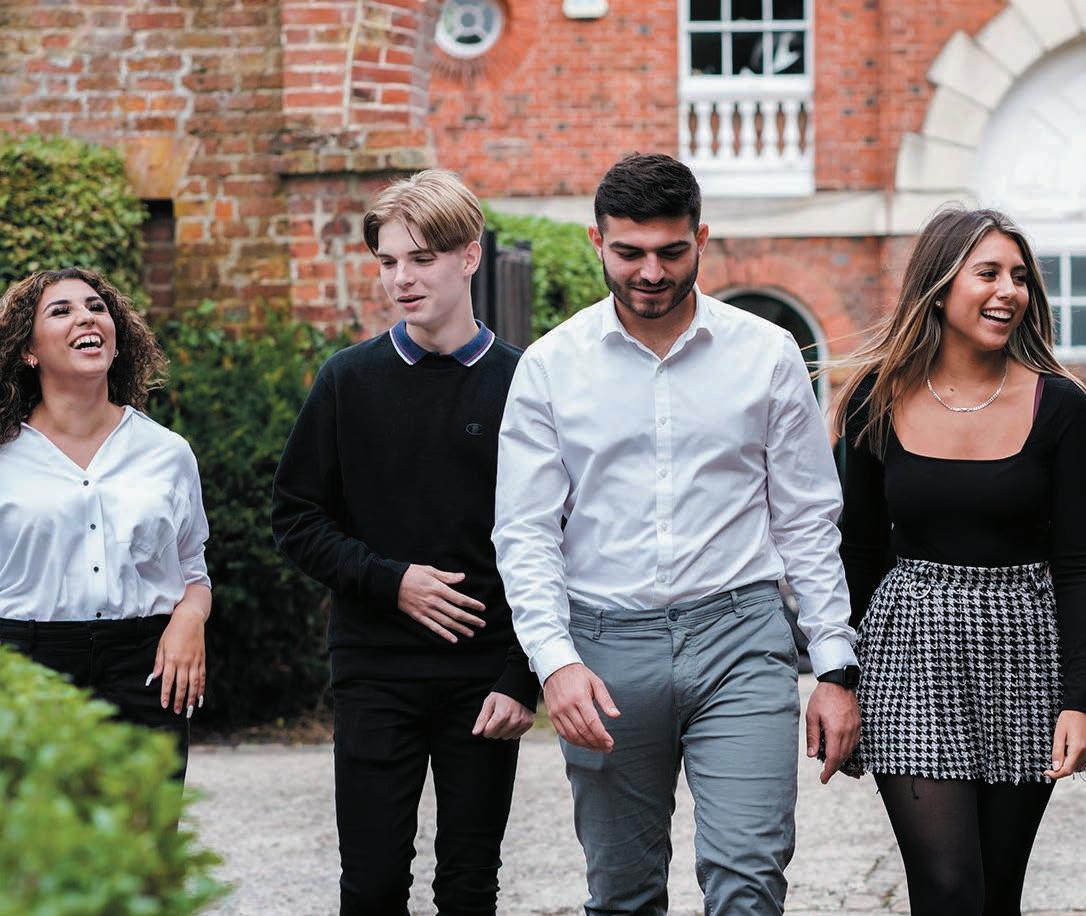



C urr icu lu m op tion s @ Mou nt H ou se S ch ool S ix th For m 2 023-2 025 CREAT E THE C URRI CU LUM TH AT SUI TS YO U Mou nt Ho use Si xt h Form off er s stude nts t he cho ice be twee n t he I B Car eer -r elate d Pr ogr amm e*, A Leve ls, and L eve l 3 Di plom as. LI FE SKI LL S ACAD EMI C & PR ACTI CAL REAL -W ORL D CO NTEXT S Your Future: Your Choice *Only schools a uthoriz ed by the IB Organisa tion ca n offer any of its four a ca demic progra mmes: the Prima ry Yea rs Progra mme (PYP), the Middle Yea rs Progra mme (MYP), the Diploma Progra mme, or the Ca reer-rela ted Progra mme (CP) Ca ndida te sta tus gives no gua ra ntee tha t a uthoriza tion will be gra nted. For further informa tion about the IB a nd its progra mmes, visit www ibo org www .moun th ou se .org.uk Mou nt Ho use is an i ncl usive sch oo l in Bar net wi th sm al l class sizes, supp or ti ng i ts stu de nts to deve lo p as r oun de d in di vi dua ls wi th exce lle nt r esu lts. Ple ase contac t us f or m or e inf orm ati o n. !
What Educators And Parents Must Consider When Supporting Children With Autism
Education can often become an overwhelming experience for students at the best of times. From day-to-day learning, homework, extracurricular activities, and the pressures that manifest as a result of them, children are naturally pulled in several directions as they learn how to cope and develop. But for children with autism spectrum disorder (ASD), those demands become even more significant. In addition, the impact of ASD on communication, information processing, the senses, and social interaction, can create further challenges at home and in the classroom. Here, Ruan Ives, a 13-year-old student of the in-home and online tutoring company, Tutor Doctor, discusses what educators and parents must consider when creating a positive learning environment for children with autism.
The Māori word for autism is Takiwātanga, and it is defined as ‘In their own time and space’. I believe this is the perfect way to summarise what must be considered by parents and educators when nurturing and supporting autistic children. Put simply, we learn and absorb information at a different rate to neurotypical people, but that’s certainly not something to be scared of. In fact, I’d argue that neurodiversity is a superpower, and it’s important to know how to handle and deal with our superpowers in order for us to maximise our educational experiences, whether we are at home or in the classroom. To define the characteristics of an ASD student, there are the so-called four s’s that help contextualise our behavioural patterns and why they differ from neurotypical people.
Spectrum: we’re all on different parts of the spectrum. Autistic people fall onto the part of the spectrum characterised
by difficulties with social interaction and communication. But autistic people also have their own internal spectrum. Different situations, days and circumstances influence where we fall on the spectrum at any given time. Certain stimuli can elevate the ASD spectrum, and those stimuli differ from person to person.
Stacking: we all have different natural responses to situations and the emotions that come as a result of them. But stacking is the process in which these different feelings pile up and that can make ordinary situations feel unbearable. Stacking leads to heightened emotional responses, which lessen our emotional resilience.
Stimming: when stacking, autistic people will more than likely be stimming. Stimming is a way of self-regulation and can be done in many ways depending on personal preference. For example, clicking a pen, using a fidget cube, vocalising and other self-stimulating activities can be used to calm ourselves down. Sometimes an autistic person may mask (hide) the stim, but it is a way of helping us process our emotions.
Shutdown: you might call this one ‘meltdown’. This happens after a day full of stacking and masking the stim and can present in many ways. You might see it in the form of crying, shouting, running away, fighting, self-harm or elective mutism. During shutdown, it’s vital you give that person time and space, make them feel reassured, be patient, open a discussion and trust them.
But what do these words mean without being able to visualise and contextualise
how it might look in education? Below and on the facing page I outline what educators must consider when working with a student with ASD.
Coping with change
In a poll I distributed across the whole Tutor Doctor network, I found that 10% of education specialists agree and 90% disagree with the statement “autistic people can’t cope with change.” The answer is, of course, we can cope with change, but we respond better when we have prior warning. For example, when changing an ASD student’s teacher or tutor, let them know as far in advance as possible and allow them time to prepare. This is important for parents, too. As they will know best how their child responds to information given to them. At the best of times, students have to balance a lot of responsibilities. So, when autistic children – who stack to deal with these situations –are presented with unexpected changes to their educational experience, it can lead to shutdown. Educators, both private tutors and schoolteachers, must give students with ASD time to adapt and emotionally deal with changes in order for us to cope and get the most from our educational experiences. Parent, meanwhile, should be there to support the change and alleviate the pressures we may be feeling.
Routine and order
In the same poll, I found that 96% of education specialists agree and 4% disagree with the statement “autistic people like routine and order.” The answer is that most like routine and order but don’t like to create the routine and order. So,
28 | Cherubs Magazine EDUCATION 020 8154 3664
similar to coping with change, it helps us to have plenty of prior warning of routines. However, it also helps us cope if we have support in shaping our routine, whether it’s our week, our day, or even our hour. We aren’t limited by our cognitive capabilities but support in applying our capabilities helps us minimise what we have to stack, and therefore reduces the chance of shutdown.
Nurturing what makes us special
One thing that comes along with autism is hyperfocus, which often manifests as becoming so focused on a task that we don’t know what’s going on around us. Along with hyperfocus, people with ASD often find a special interest, and this can quite literally be anything, from road signs to technology and everything in between! The knowledge we have of these specific topics, objects, or interests can demonstrate the level of mastery an autistic student is capable of when engaged and motivated. Therefore, educators and parents who lean into that special interest help us to bond with them and help us refocus, should we begin stimming.
Maximising a positive outcome
Finally, it’s vital that educators have everything they need to help us enjoy our education, and parents can become involved in our experience by providing what resources that have helped them. Be vigilant of stimming, and if an autistic student seems unfocused, don’t push too hard as this can lead to shutdown. If you notice a certain topic, or anything in particular worsens the stimming, steer away from it. Be patient, inviting and understanding! Often, people with ASD enjoy opportunities to mentally relax and reset alone. And this is the same in the home environment! This can be incredibly beneficial – the best thing to do if an autistic child approaches shutdown is to take a step back and give them space.
The concept of the ‘spectrum’ indicates the wide range of emotional and physical responses autistic children may have to varying interactions and communications. However, putting these considerations into practice hugely benefits our overall education experiences. We stim to deal with daily pressures that neurotypical children may not feel, but it doesn’t mean they aren’t there. Neurodiversity is a superpower, and it’s down to educators and parents to work with us to help nurture our passions as opposed to thinking that we’re misbehaving. Remember the definition of Takiwātanga? We aren’t limited by our knowledge - our neurodiversity just means we need support in achieving what we’re capable of, as every child does!

EDUCATION cherubsmagazine.com Cherubs Magazine | 29
…to give your daughter the BEST education
At Palmers Green High School (PGHS), we know that girls do better in an allgirls environment. Research has shown that pupils in single-sex schools are more confident to participate in lessons, and more likely to reach their full potential. And for girls in particular, the benefits can be profound and last well beyond their school days.

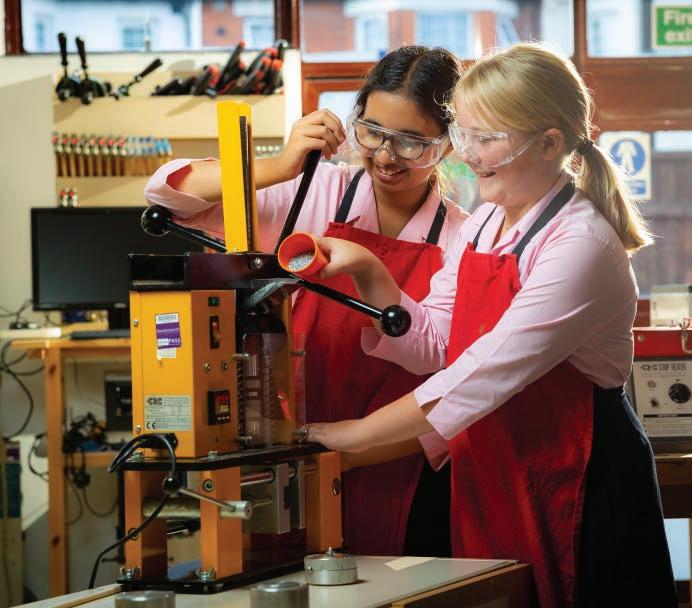
A recent investigation into the effects of all-girls education found that alumnae demonstrated stronger academic skills, greater engagement with their studies, higher confidence in science and technology skills and stronger community involvement. Girls in same-sex schools have more opportunities to excel athletically and take on school leadership roles.
PGHS not only benefits from being an allgirls school – the only all-girls through school
in the area – but also from small class sizes throughout. In the Lower School (ages 4-11), there are a maximum of 24 pupils in a class and many specialist subjects such as Design & Technology are taught to half-class groups, ensuring far greater access to resources and adult attention. In the Senior School (ages 11-16), teaching groups are usually between 12-16 pupils, and often lower for the crucial GCSE years. The level of interaction between teachers and students is unparalleled.
Being a smaller School gives all children greater access to the many opportunities beyond the classroom, such as participating in a School musical production, sports team or chess tournament. Pupil voice is lauded and girls are expected to take on leadership roles that would usually be reserved for Sixth Form pupils. Student Council offers all pupils the chance to suggest changes that

they would like to see. Pupil voice led to the introduction of trousers, creation of new extracurricular clubs such as chess, Design & Technology and cookery, and also voted in the new PE kit for the Senior School.
At PGHS, our three main points of entry to the School are Nursery, Reception and Year 7, although ad-hoc places may be available in other year groups. If you are as passionate as us about giving girls the best start in life, please come and visit us. We believe all girls should have access to small, nurturing classes that are academically vigorous.
Our Main School Open Morning will be held on Saturday 17th June. However, you are welcome to contact us at any time on 020 8886 1135 to find out more about joining our wonderful School.
020 8154 3664 30 | Cherubs Magazine
EDUCATION - ADVERTISING FEATURE
It’s never too late…
For the achievers of tomorrow.
Palmers Green High School (PGHS) is a leading independent School which specialises in educating girls aged 3-16 years old. We help pupils develop a lifelong love of learning throughout our Nursery, Lower and Senior School. PGHS offers pupils an excellent academic education with access to superb specialist facilities, in an inspiring and nurturing environment.
We are excellent! How do we know?
PGHS is ranked Number One in The Sunday Times National League Table for Independent Schools with no Sixth Form. PGHS was rated EXCELLENT by the Independent Schools Inspectorate 2022. Outstanding year-on-year GCSE results.
Main School Open Morning
We welcome you to join our Main School Open Morning on Saturday 17th June 2023. Please register online at www.pghs.co.uk/main-school-open-morning

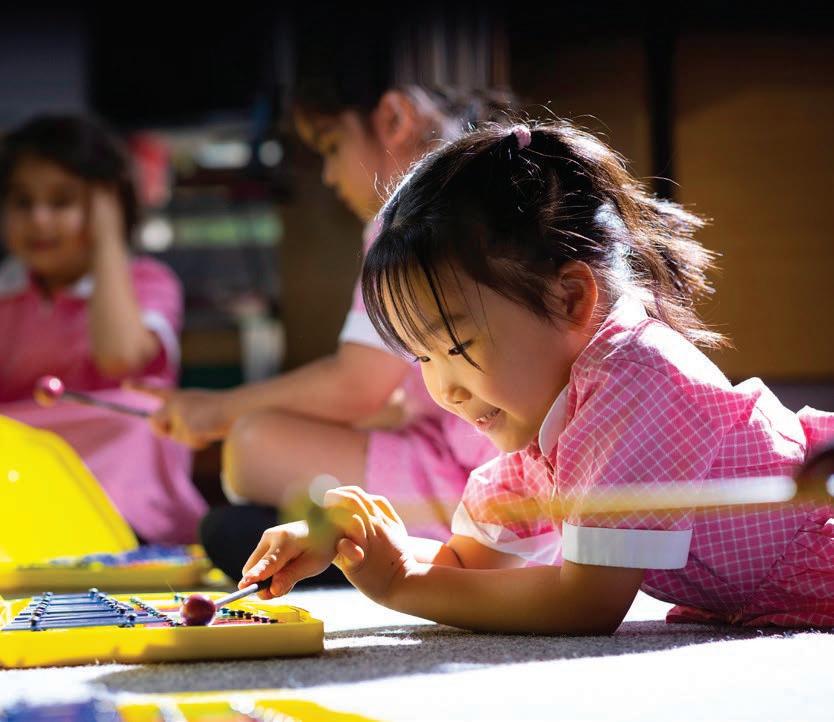

If you are looking for a Reception or Year 7 September 2023 place, please contact us on 020 8886 1135 to book an individual tour and entrance assessment.



104 Hoppers Road London N21 3LJ www.pghs.co.uk 020 8886 1135 office@pghs.co.uk
PALMERS GREEN HIGH SCHOOL
Chess, mini-games and a Pic & mix
By Hari Neocleous @the_maths_nuts


A mini-intro to chess


Chess is a game of strategy played on an 8x8 board. There are two players. Each player has their army of 16 pieces. There are six types of pieces, the pawns, rooks, knights, bishops, the king and queen. The aim of the game is to trap your opponent’s king, this is called ‘checkmate’. The original game of chess, dating back 1500 years, was known as ‘Chaturanga’ and originates from India.
and challenge myself. It’s a wonderful way for children to develop concentration skills. Students will often tell me that their ‘brains are working hard’. It can be intense and some children feel a sense of pressure as they try to win. But coping with pressure, losing and winning graciously are areas children should explore.
What are chess mini-games?



With longer and brighter days ahead, you may be thinking of a new family hobby or club for your little one. I want to tell you about the beautiful game of chess. There are so many benefits to playing chess, think of it as a pick and mix sweet bag. Take your pick from developing social skills, confidence, concentration skills, memory, decision-making skills, problem solving and more. There are different benefits for different children that’s why chess is so amazing.
The benefits of chess
At the top of my list is the social connection chess gives our children. In a world of gadgets and increasing screen time chess is a welcome pastime. Chess connects us socially. Making friends is easy across the board. It’s a universal game, all backgrounds and ages can come together and enjoy it.
Growing up, chess was a wonderful hobby that calmed my overactive mind. I loved the focus, the competitive factor and the way it gave me an edge. My brother taught me when I was in primary school. Chess allowed me to think creatively, be analytical
Another benefit of chess is problem solving. Through games, key questions and carefully planned tasks children develop problem solving and critical thinking skills. They make decisions throughout, using initiative and communicating ideas. How does this piece move? Where should I move it? How can I attack, which pieces are undefended? At some point during the game, they have to look at what they have and where their opponent is weak and devise their master plan. How can I trap the king? Being able to ‘see’ this opportunity is a big deal. Chess teachers explore many end games so students can recognise how and when they can create a checkmate or avoid it for their own king. There is so much to think about in a game of chess. Lessons teach children to play strategically. There are puzzles, board positions and famous games to study.
Mini-games are a big part of how young children learn to play chess. We avoid setting up the board with all the pieces at first. There are two types of chess minigames I want to tell to about. There are mini-games where you focus on one or two pieces only. Games are five or ten minutes long. You learn how a piece moves and captures and then you play. For example, in ‘Pawntastic’ (or ‘All pawns versus all pawns’) the winner is the first person to get a pawn to the other side. You can also win by blocking your opponent, if it’s their move and they cannot move any of their pawns you win! It sounds simple but the beginner player is planning and visualising moves, capturing, blocking and defending. They’re taking their first steps in strategic play.
Chess mini-games allow a child to learn in small bite-size chunks. Having a forty-minute game when you’re first starting out is tough so mini games are ideal. The quick pace means happy and excited students. More experienced students can of course move onto full games. There is no rush for your child to
32 | Cherubs Magazine
EDUCATION
020 8154 3664
learn chess. Learning the game takes time and there are many gains along the way. (By the way, the journey never ends, you can learn chess for the rest of your life. There are endless books, courses, YouTube channels and people to follow on TikTok). Chess teaches you the power of self-study and perseverance.
I also tell my students that chess imitates life. A game of chess is about the journey.
EDUCATION
Homecoming is another favourite. In Homecoming you remove the sixteen pawns. The other eight pieces are on the back rows but they’re muddled. The winner is the first person to return their own pieces back to their home positions! The order of moves is key.
I want my child to play, what should I do next?
If there are a group of parents at your school interested in a chess club, get together and approach your headteacher. Find out about local chess clubs, in person or maybe online. Checkout the chesskid. com website and chessinschools.co.uk charity. If you can, learn together and keep it fun.
Enjoy the in-between moments and cope with plans changing. If you lose, use it as a lesson to reflect. You will realise that you’ve learnt something. This is the same in life too. I love the way I can weave in ‘life advice’.

The second type of game is for children who know how to play a full game. I love Loser’s Chess; in this game the winner is the first person to lose all of their pieces!

Mini-game websites:

Visit logiqboard.com, an interactive online chessboard for chess and mini-games.














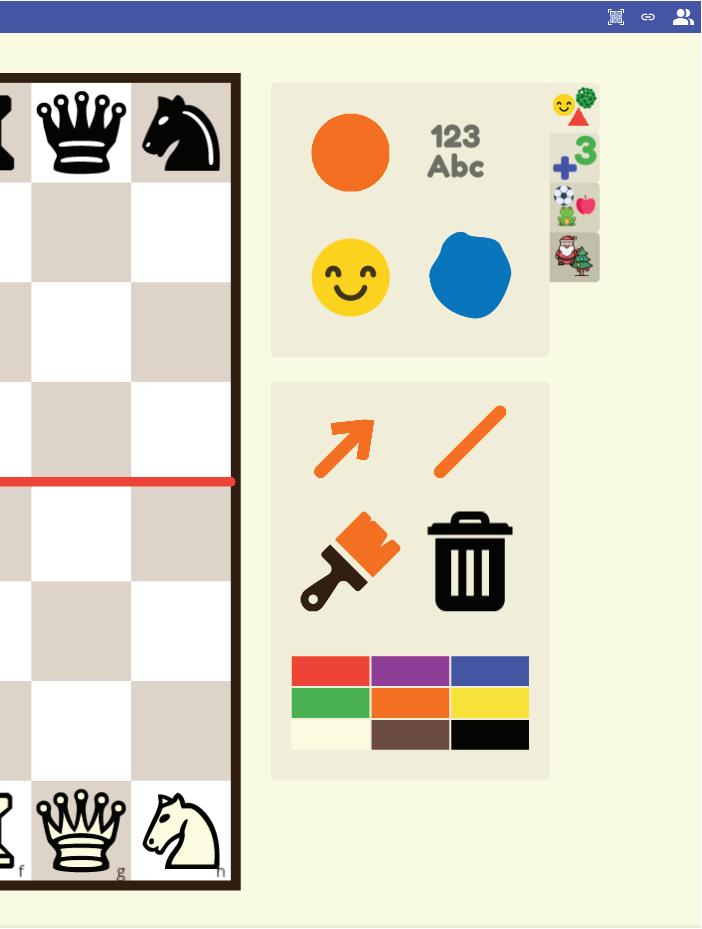

Visit chessplus.net, play mini-games against the computer.
Download acornchess.com, many minigames to explore.
I hope I’ve inspired you to give your child the gift of chess. Focus on the social and educational benefits of chess but be curious and you’ll discover so many wonderful things happening. The Summer Chess Festival in London’s Trafalgar Square, chess café’s popping up, children’s chess stories, famous young players and movies. There are fascinating projects for Alzheimer’s patients, chess in prisons, refugee projects. The chess world is exciting and dynamic!
I’m going to leave you with some homework. Watch the movie, The Queen of Katwe’ (it’s important to hook your child in gently) and finally, choose three reasons to play chess for your pick and mix bag.
cherubsmagazine.com Cherubs Magazine | 33
Happy Homework
 By Aimee Hart
By Aimee Hart
020 8154 3664 34 | Cherubs Magazine EDUCATION
Homework is a concept that comes in many different forms. Homework can be a way for young children to revise what they have learnt in the classroom; it can be a way to build independence and responsibility and it can also be a way to ensure parents gain an understanding of what their children are learning. There is no clear evidence that homework boosts learning – in some circumstances it can have negative effects that can build an unhealthy relationship with learning but if it’s done right it can be a big support. Below are some tips to make sure you can set up the right routines and expectations for young children as they navigate their way through homework.
Establish a positive relationship with homework
Allow children to feel successful with work they do at home and try not to make it a battle or a chore. This is definitely easier said than done (I have an eight-year-old – I know.) It’s about knowing when is the right time to continue to push or to concede and take a break. It’s also about them seeing the benefits of rehearsing any sort of learning outside of the classroom.

‘Eat the Frog’
An idea coined by Brain Tracy which basically means to complete a task as soon as you get it. Get it done and then it won’t follow you around ‘ribbiting’ and reminding you of its incompleteness! This is a good mentality to build in children – especially those who are slightly older and are able to complete their homework independently. Eat the frog – don’t let it follow you around all weekend!
The right emotional moment
Try to find a time when your child is not tired or upset. More importantly try and find a time when you are not tired or stressed. From my own experience I know that my tolerance levels are a lot lower when I’m burnt out which often leads to arguments or conflict. If children feel you getting annoyed their natural response will be to think they aren’t good enough or not working hard enough to meet your expectations.
Don’t get caught up on the content
A lot of the time, especially in primary school, the homework that’s set tends to be set as a way to consolidate their learning. Which means it might be easy … or it might be hard! This depends on their experience that week within their learning or how they’ve found that particular topic. Don’t get caught up on this, if there was an issue then the teacher will have spoken to you. If your child really doesn’t get it then speak to them. Communication is key.
Learn along with your child
Take some time to look over what your child needs to do before you sit down with your child to do it. If it’s a strategy you know or a concept you’re familiar with then you will feel more empowered going into the task. If it’s something you are unfamiliar with, do a little research or ask your child to explain it to you. If you give them a chance to ‘teach you’ then you’re more likely to see them succeed. They also like the power of being the one in the know and hopefully they’ll repeat some key vocabulary from the lessons.
There are no set rules for homework, so schools decide how to manage this in their own way. Some set regular specific homework; some give out a list of activities at the start of each term; some are working on ensuring knowledge is discussed at home rather than activities completed. From a school’s perspective the main goal is that children see their learning extending outside of the classroom. There
are endless opportunities for this in the wider world without being sat in front of a workbook. Teachers can spend hours prepping homework when research has shown very little evidence to support it. Often the parents complete the homework – or heavily edit it because there’s a fear or sending work in that’s wrong. Schools invest a lot of time in growth mind-set with children – mistakes are good, they help us learn. But I know, as a parent, you want your children to show they are capable no matter what. There’s a balance between the discipline of completing homework and the actual benefits of what it can do. As a teacher, as a deputy head, I have had long conversations about homework – at school and at home – and it’s a very difficult thing to get right. Creating a positive environment and relationship with work outside of school is the main takeaway from my article today. Don’t be afraid to get it wrong. Don’t let it create an argument. Do make sure the children know why it’s important. Celebrate learning together.
cherubsmagazine.com Cherubs Magazine | 35 EDUCATION
How Low Self-Esteem Can Affect Young People And Adults
Written by Marilena Andreou, Cognitive Behavioural Psychotherapist
Self-esteem refers to the general opinions that we have about ourselves. When a person has healthy self-esteem, they generally tend to feel more positive about themselves. A person with low self-esteem has more negative self-beliefs and tends to be more self-critical.
Where does low self-esteem stem from?
Most of the time low self-esteem stems from childhood. The main component of self-esteem is in your specific beliefs about yourself. Sometimes you may view these beliefs as concrete facts about yourself. It is worth noting that these are more distorted perceptions that you have developed about yourself rather than actual facts. These perceptions (opinions) are often biased or inaccurate. The opinions you hold about yourself can be adapted.
Most people’s perceptions about themselves come from some of the experiences that they have had. Teachers, friends, parents and even the media can send both positive and negative messages about ourselves. Those with low self-esteem can fixate on the negative messages that they have received in their lives and start believing them through to adulthood. This negative belief system can perpetuate and sometimes leads to anxiety and depression.
How do negative experiences affect young people?
The beliefs we have about ourselves have been learned. The negative beliefs you have about yourself are based on conclusions that you have developed because of what has happened to you. Your thinking has been hugely influenced by those around you, the things people said, the things you saw in your childhood. Furthermore your negative thinking patterns could have continued to the present day which has contributed to low self-esteem.
Punishment, neglect or abuse
If children are treated badly, then most of the time they make assumptions that they must have deserved this. If you were punished frequently (particularly if it was excessive), abused or neglected then these experiences affect how you perceive yourself in general.
Not meeting parental standards
If others (teachers, parents, and friends) treated you as if the things you did were never not good enough, and highlighted your mistakes then you could have been left believing that there is something wrong
with you and that you are different (or the ‘odd one out’) from the others around you. You could have internalised that being different means being somehow odd or inferior.
Here are some good tips about how to acquire healthy self-esteem:

• Identify the negative beliefs you have about yourself and write down some evidence that challenges them. Don’t believe everything you think.
• Keep a diary on a daily basis of good things that people say or have said about you.
• Write down what you are good at doing (for example, cooking, playing football, drawing, arts and crafts et cetera). Try and do more of the things that you are good at as this can also bring a sense of enjoyment and can improve your mood.
• Be kind to yourself – talk to yourself as if you were talking to your best friend, with compassion.
• Be assertive – you don’t need to be a people-pleaser to be liked, learn to say no to others and to communicate your needs.
In conclusion, low self-esteem affects young people and adults, it often develops in childhood. But there are things that you can to boost your self-esteem and make it healthier.
020 8154 3664 36 | Cherubs Magazine HEALTH & WELLBEING
inspiring-minds-therapy.co.uk
Website:
10% Discount
THE SWEET DREAMS GUIDE:
A Journey to Better Sleep
By Julie Hamshere
Do you struggle to fall asleep at night or wake up feeling tired and unrefreshed? You’re not alone. A recent study by the Direct Line Group found that one in seven Brits survive on less than five hours of sleep a night, and 71% of the country do not get the recommended amount of sleep, (NHS guidelines state seven to nine hours for adults, nine to 13 hours for children). The impact of poor sleep patterns on our lives can be significant, from decreased brain function to lower mood, stress, and overall health.
Sleep is essential for our well-being, but sometimes it can be elusive. Factors like money worries, relationship problems, ill health, exam and work stress can lead to sleep problems at any stage of life. It’s important to recognize the cause of any long-term sleep issues, but this can take time. Meanwhile, taking a holistic approach to selfcare can be beneficial.
The UK is sleep deprived, but you don’t have to be. In this article, we’ll guide you through the basics of better sleep and explore some helpful tips and techniques to ensure a good night’s sleep.

Setting yourself up for a good night’s sleep starts with small changes, such as avoiding blue light from devices, cutting out alcohol and caffeine, eating earlier in the evening, using calming scents, and investing in blackout curtains or blinds. Establishing a bedtime routine can also be beneficial. For instance, you can try going to bed at the same time every night, using a salt lamp and relaxing pillow spray, and listening to a gentle podcast story.
Preparing your body and mind to switch off and relax is also crucial. Two therapies that you can do at home every night in bed are reflexology and hypnosis techniques. Reflexology can help you relax and fall asleep by working on specific points in your hands to
promote relaxation and balance within your body. Hypnosis, on the other hand, involves visualizing, focus and breathing to help calm your mind and body, helping you drift off to sleep.
Try Reflexology
Walk your thumb along the diaphragm reflex (across the middle of the hand from one side to the other) and take deep breaths. Next rub your thumb and use circular movements over the top and the tip of the other thumb (the area above the bend and behind the nail bed) to help calm your mind. Repeat these movements on both hands.
Try Hypnosis
(with your eyes closed)
Imagine a calming colour surrounding you and as you breathe in, imagine breathing in that colour of calm. Breathe out any worries or stresses and continue until you feel heavy and relaxed. By visualising the colour as a calming mist surrounding you, it will easily reach any tense parts of the body and you can imagine these areas softening and relaxing as you do this simple exercise.
If you’re struggling with sleep, it’s important not to stress yourself out over it. Regular reflexology and hypnosis practice can help with general stress and anxiety and promote balance and relaxation. However, if you have consistent sleep problems, it may be a sign of a sleep disorder, so talk to your doctor.
If you’d like to experience the power of reflexology or hypnosis, please contact Julie@feelthinkdo.co.uk. Julie practices in the North London/Herts area and remotely, and all readers will receive a 10% discount off their first booking. So, why wait? Take the first step towards a better night’s sleep today.
cherubsmagazine.com Cherubs Magazine | 37
HEALTH & WELLBEING
Find a FREE sleep hypnosis recording at feelthinkdo.co.uk or on Soudcloud on.soundcloud.com/3YNqJ
QUOTE Cherubs
How To Eat For Energy
With Christianna Karaolis from Eat Happy Feel Good
Low energy is one of the most common complaints I see in clinic and it seems that at some point it affects almost everyone. So why does it happen and what can we do about it?
Feeling constantly tired is not normal. It’s your body’s way of telling you something isn’t right and it needs support.
Firstly, I recommend getting assessed for any nutritional deficiencies that may be contributing feeling fatigued. Low levels of iron, vitamin D, B vitamins and magnesium can be partial causes for low energy. Depending on health status and diet, making dietary changes can help address these insufficiencies. Testing and appropriate supplementation may also be necessary.
Another potential health consideration for energy is thyroid function – consistent low energy may be a symptom of underactive thyroid so speak to your GP and tested to make sure your thyroid is functioning well. Now lets talk food! What and how should we eat to improve energy levels?
For energy our body needs the nutrients mentioned above. To increase intake: get iron from meat, liver, tofu, lentils, beans, spinach. Add a source of vitamin C such as from citrus fruit, tomatoes or peppers to help your body absorb the iron from plant foods. Food sources of magnesium include green leafy vegetables, nuts, seeds, legumes and whole grains. Get B vitamins from salmon, leafy greens, eggs, beef, shellfish, legumes. It can be difficult to get Vitamin D from foods so I usually recommend a supplement.
Breakfast – to eat or not to eat? I know there is contrasting advice on this and the truth is: it is individual! If you don’t like having breakfast, don’t. If having breakfast works for you – that’s great too. I suggest you start your day with a high protein meal, like eggs on rye bread, oats with fruit and seeds, chia pudding etc. Most cereals or pastries are full of sugar and not an ideal breakfast. It will set you on a blood sugar rollercoaster that will definitely not help energy levels later on. On the other hand, a protein packed breakfast will help maintain stable sugar and energy levels throughout the day.
What we eat is a massive factor when it comes to energy levels. For most meals, it’s a really good idea to include slow energy-release foods – these do exactly what it sounds like and release their energy more gradually which provides sustained energy throughout the day. Complex carbohydrates like chickpeas, beans, lentils, quinoa, sweet potatoes, wild rice, whole grains are all examples. This is a great starting point for any meal. Add a portion of protein (fish, chicken, seafood, tofu, beans, lentils) and some healthy fats such as avocado, olive oil, nuts or seeds to give you a nutritionally balanced meal. This composition will be digested gradually, feel satisfying and keep you energised. For snacks, go for fruit and nuts which are also complex carbs; or some natural yoghurt with nuts and seeds, a high protein and high fibre energy ball et cetera.
There are also a couple of things we should try to not do too often. Top of the list is eating sugary snacks. It may seem like a good idea at the time; when you want some energy to reach for something sweet, but its actually counterproductive. Unlike slow release foods, sweet snacks are broken down very fast by our body and release their energy quickly. This causes a blood sugar spike which is then followed by a blood sugar -and energy- dip.
So to help prevent a mid-afternoon energy slump, try and keep blood sugar levels steady, which is largely down to what you have eaten the previous few hours.
Avoid over eating and being too full. When you eat very large meals the body has to divert energy to digestive processes which means less energy for everything else. Ever heard of a food coma? It’s a real thing! At lunch, have a nutritious satisfying meal and stop when you’re around 80% full. Eat slowly so you can more accurately assess how full you are. Give your brain time to catch up to your stomach so eat mindfully away from your desk.
For most, it’s not advisable to go for long periods without eating. It can happen that on busy days we neglect eating, but remember that food is the fuel our body uses for energy.
Linked to nutrition is hydration. Dehydration affects your energy levels and ability to focus. Make it easy for your self by having water within easy reach and sip throughout the day to maintain hydration. Don’t forget that herbal teas, smoothies, and high water content foods such as soups, fruit and veg also help keep you hydrated.
Movement can increase energy levels and being sedentary can contribute to low energy. Try to move more in a way that feels good. I don’t just mean exercise, I’m referring to regular movement throughout the day. Avoid sitting for prolonged periods of time. If you’ve been at your desk for a few hours, make a conscious effort to get up and move around for a few minutes – get blood and oxygen flowing, ideally outdoors which will also help. Even a few minutes of movement several times throughout the day can add up to significant benefits.
Some other things that could help: consider a standing desk – you will feel more alert and avoid the potential adverse effects of sitting for too long. Take walking meetings; if it’s something informal that can be discussed while walking it can be energising.
Are you sleeping well? Sleep is as fundamental to energy levels as good nutrition. If this is something that you struggle with and you wake in the morning tired, prioritise improving it. Lots of factors can impact sleep but my top tips are having a calming evening routine, minimising caffeine and screen time, avoiding big meals before bedtime, increasing movement and having a cool and comfortable bed.
Finally take a moment to consider – how’s your mental wellbeing? Are you feeling particularly stressed? Your brain uses up an incredible amount of energy and when stressed it can be exhausting! If you can, address the cause of your stress and if that’s not possible right now, find ways to help your brain rest and calm. Active relaxation, enjoyable distraction and self-care. In times of high stress it’s also important to minimise small life stressors to reduce overall stress levels.
If you’d like to have a consultation with Christianna, contact her on 07851 680211 or christianna@eathappyfeelgood.co.uk

020 8154 3664 38 | Cherubs Magazine HEALTH & WELLBEING
BEAT THE BURN

Energy Healing
With Karina Grant
With energy healing gaining wider mainstream acceptance, QuantumTouch offers parents a new opportunity to learn how to help when their child is in pain.
Seeing a child in any kind of pain is always difficult for any adult, and when it is your own child there is nothing more frustrating than feeling powerless and unable to help your child feel any better.
Quantum-Touch energy healing is based on scientific principles and is an exciting modality that is attracting increasing numbers of parents using it with excellent results.
How does Quantum-Touch (QT) work? Why it is such an easily learnable skill? How are parents are able to help their children with both acute and first aid situations?
Quantum-Touch is based on Einstein’s E=mc2 theory that everything is made up of energy. A healthy body has a high energy frequency and ill health is associated with a lower frequency. During the workshop participants learn specific breathing and body awareness techniques, which increases their energy to a very high level. This creates a remarkably powerful field of healing energy that can be directed anywhere in the body.
The science
The process of ‘resonance and entrainment’ causes the recipient to mirror the high energy of the facilitator. A basic example of this is explained through mirror neurons –when we see someone smile our mirror neurons light up and want to smile too.
Quantum-Touch’s specific breathing and techniques have such a highly positive focus, that the practitioner feels incredibly
energised, too. The person receiving begins to naturally mirror this and this accelerates their own immune response.
Best of all we are able to work on all manor of conditions and imbalances. This includes broken bones which heal significantly faster than usual, aches, sprains, pains, teething pain, sleep issues, stomach upsets, nosebleeds and also more serious and acute conditions too including, emotional healing and learning disabilities. In fact Quantum Touch has become quite renowned for being able to move back into place with the lightest touch, something that was previously thought of as impossible by conventional medicine.
My workshops are filled with nurses, therapists, carers and family members wanting to learn a powerful skill to help a loved one – and many parents.

Quantum-Touch is incredibly simple to learn. Children tend to find it fun to receive and it is a wonderfully natural, connective and empowering experience for the parent to be able to help reduce their child’s pain, and also calm them down when they are emotionally upset.
I often enjoy receiving emails from parents telling me their experiences and how much Quantum-Touch has made such a positive impact on their lives.
A few parents’ experiences
“I have found Quantum-Touch to be a lifesaver when it comes to using it on my children. With many scenarios if I did not know about Quantum-Touch, I would have been rushing around to A&E to get them checked over after they have hurt themselves. The relief it brings to their faces is clearly evident.
“I would strongly recommend that every parent learns the simple Quantum-Touch techniques and witness the amazing results. We always keep an eye on the children after every incident in case the symptoms get worse, to take them to the GP for a check-up – but it hasn’t happened yet.”
Leila B, London, Nanny and Mother
“Skyla (aged two) had been a bit ill for a few days and woke with a horrid cough, it sounded like a croup cough. I tried soothing her through it so she could sleep, I felt very helpless, and then remembered that I could use Quantum-Touch on her. I was surprised at how quickly her coughing fits faded, and her whole body relaxed. It is so empowering as a parent.”
Natalie Stokell, Massage Therapist
“I teach at a school for children with all levels of autism. I have been using QuantumTouch at school with positive effect. I believe that parents who can do this for their child can help them much more. I also think that if this is taught to children they will be able to use it for their own benefit. It could be part of their (PSHE) curriculum.”
Frances Sutherland, UK Teacher
“My 14 year old niece had been seeing a chiropractor for a year to help her open her jaw. She was clenching her jaw during her sleep and she could hardly open her mouth without pain on one side of her jaw. I used my Quantum-Touch skills with her. By the morning she said her discomfort was zero –and she had full movement in her jaw. That was at Christmas – and everything still fine.”
Lesley Ducherer, London
020 8154 3664 40 | Cherubs Magazine
HEALTH & WELLBEING - ADVERTISING FEATURE
For more information please visit karinagrant.co.uk Instagram: @karinagranthealing Facebook: @karinagrantqt


EatHappyFeelGood
Feta, Walnut And Apple Salad

This delicious combination of salty, sweet and sharp flavours with crunchy and creamy textures is absolutely gorgeous. It’s a really robust salad too so you can make a big batch and enjoy it for a few days. And of course, its full of goodness!
Salad Ingredients
• 4 cups cooked and cooled quinoa (or two pouches pre-cooked quinoa)

• 8 cups kale 2 red apples
• ½ cup walnuts, chopped
• ½ cup golden sultanas or raisins
• ½ cup feta cheese
• Extra walnuts and sultanas for the top
• Tortillas, to serve
Dressing Ingredients
• 2 teaspoons Dijon mustard

• Pinch of sugar
• 3 tablespoons white wine vinegar

• 6 tablespoons extra virgin olive oil
• Salt and pepper
Method
1. Make the dressing by whisking the mustard and sugar into the vinegar. Season well. Whisk and gradually drizzle in the olive oil to form a thick dressing. Set aside.

2. Chop the apples into cubes and put in a small bowl of water. Add ½ teaspoon of salt, mix and set aside. This prevents the apples from browning.
3. Wilt the kale. Put in a colander and pour boiling water over it for a few seconds. Then run under cold water to stop the cooking and set the bright green colour. Drain well and squeeze out all excess water.
4. Put the wilted and drained kale, cooked quinoa, chopped apples and sultanas in a large bowl. Add a little dressing and mix well.



5. Crumple the feta on top. Drizzle with a little extra dressing and top with extra walnuts and sultanas. Enjoy!

020 8154 3664 LIVING 42 | Cherubs Magazine
Chocolate Chia Mousse
A gorgeous recipe that satisfies any chocolate craving and packs a load of goodness too thanks to the chia seeds. Chia seeds are a nutrition powerhouse: high in fibre, omega 3 fats, protein, antioxidants and an impressive array of minerals.
Ingredients
• 2 ¼ cups unsweetened oat milk
• ½ cup chia seeds
• ¼ cup unsweetened cacao powder
Method
• ¼ cup maple syrup (add a little more if you would like it a little sweeter)
• 1 tsp vanilla extract
• ½ tsp fine salt
1. Put the chia seeds in a small food processor / blender and blend into a fine powder. You may need to scrape down the side of the blender a couple of times.
2. Add the remaining ingredients and blend till well combined. Taste and add a little more maple syrup if you would like it a little sweeter.
3. Put in the fridge for at least a couple of hours to thicken.
4. Portion and serve with berries.
Cookie Dough Balls
A treat with a load of goodness because they’re made with a very surprising ingredient – chickpeas. I promise no one will know. It is important to use cooked chickpeas from a jar, they tend to be the softest and will gibe you the smoothest cookie dough.
Ingredients
• 1 ½ cups cooked chickpeas from a jar, drained
• ⅓ cup smooth unsweetened peanut or almond butter
• ½ cup oat flour (oats blitzed into a flour)
Breakfast Fajitas

Ingredients
• 2 sweet potatoes, peeled and cut into slices
• 2 tbsp olive oil
• 2 red peppers sliced
• 1 red onion, cut into six wedges
• ½ teaspoon ground cumin

Method
1. Preheat oven to 220C.
• ½ teaspoon paprika
• Salt and pepper
• 6 to 8 eggs
• ½ cup cheddar cheese, grated
• Lime, coriander, jalapeno and avocado for serving
• Optional, chilli flakes to serve
• Tortillas to serve
2. Put the sweet potatoes, peppers and onions on to a large baking tray. Drizzle with the olive oil and sprinkle with the cumin and paprika. Season with salt. Mix well and roast for 30 minutes mixing halfway.
3. Take out of the oven and make some empty spaces in between the vegetables and crack one to two eggs into each space. Season each egg with a little salt and pepper.
4. Sprinkle the cheese all vegetables and return to the oven whites are cooked and the yolks are cooked as much as you like – about five minutes for slightly runny yolks.
5. Serve with all the sides and let everyone serve themselves.
6. You can have the egg and vegetables in the tortillas and make a wrap or tear pieces off the tortilla and dip in the egg. Either way, it’s delicious.
• 4 tablespoons maple syrup
• ½ teaspoon fine salt
• 1 teaspoon vanilla extract



• ½ cup chocolate chips of your choice plain chocolate bar of your choice
• Sprinkles or flaky sea salt
Method
1. Rinse the chickpeas well and pat dry to they’re not wet. Put into a food processor.
2. Add the peanut butter, oat flour, maple syrup, fine salt, vanilla and blitz till well combined and totally smooth. It will be very thick.
3. Transfer to a bowl, cover and put in the fridge to cool down for about 30 minutes. It will be a little warm from being blended.
4. When cool, form into balls – about 12.
5. Melt the chocolate chips by putting into a microwave safe bowl and heating for 30 second intervals stirring in between. 60 to 90 seconds is enough.
6. Dip the cookie dough balls into the melted chocolate, either halfway or cover totally. While the chocolate is still wet, add a few sprinkles or a little sea salt. Return to the fridge to set.

7. Keep in the fridge in an airtight container for up to five days.
Website: eathappyfeelgood.co.uk
Instagram: @eathappyfeelgood
Cherubs Magazine | 43
H e Ed



























 By Antonia Sanchez-Toomey
By Antonia Sanchez-Toomey





Small changes can make a big impact. For spring, lean into cheery interior pieces with a hand-painted feel, and tactile organic shapes.
























020 8154 3664 LIVING Instagram: @antonia_sanchez_toomey
Lampshade Matilda Goad
44 | Cherubs Magazine
Bloomingville Chopping Board £45
Sweetpea & Willow
Terracotta
Pink Mirror £22 klevering
Locker £289 Mustard Made
Amuse La Bouche Cushion £89
Rose & Grey
Linen Bedset £75-105 M&S H&M
Mildred Candle Stick £38
Pooky
Espresso Cups £25
Oliver Bonas
The Ultimate Breakfast Smoothie
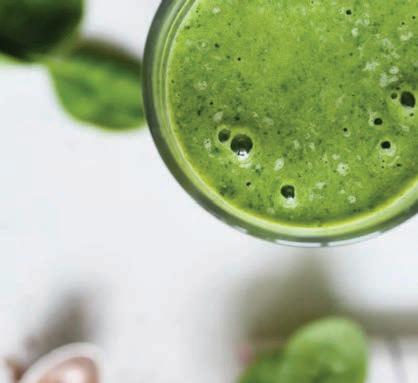
with Nesh
Smoothies are my go-to for busy morning breakfasts, that healthy snack and the after-school nutrition hit. They are a great way to increase vitamin and mineral intake without any added nasties. Remember to not overload with fruit otherwise you risk increasing that blood sugar spike!

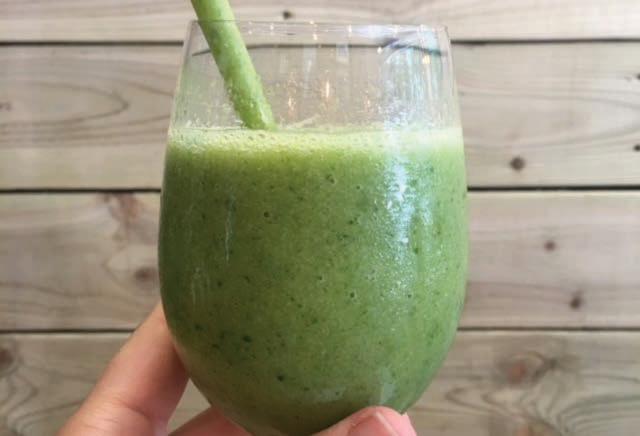
Gorgeous Green
Smoothie
Ingredients
• 200ml coconut water
• 2 cubes frozen spinach
• ½ frozen banana
• ½ green apple
• ¼ small avocado
• ½ celery stick
• ½ lime juice
• 1 tsp spirulina
• 2 tbsp hemp protein
Follow for more:
@freshnesh_

@cookfreshwithnesh
@nutritionwithnesh
Breakfast Avocado
Smoothie
Ingredients
• 1 cup milk
• 2 tbsp greek yoghourt
• 2 tbsp oats
• ½ tsp cacao powder
• ¼ small avocado
• ½ frozen banana
• 1 tbsp ground flaxseed
cherubsmagazine.com LIVING Cherubs Magazine | 45
Bring Life Into Your Home With Houseplant Pots

The secret to transforming your space on a budget
Houseplant pots are an excellent way to transform any space in your home. They offer a simple, affordable way to update any room, add colour, and bring life into your home. Not only do they offer functional benefits, but they also provide an opportunity to get your personal style into the mix, perfect for updating a room in spring. Plants in pots have become increasingly popular in recent years, adding both beauty and life to any indoor space. Whether you’re looking to decorate with unusual plants in pots or prefer a more traditional look, there’s a wide range of options to choose from.
With so many options available, it’s easy to find the perfect pot for your indoor plants and pots, whether you’re on a tight budget or looking for something more luxurious. Here are a few ways you can style houseplant pots and why they can transform a room.
1. Style and interior design – the houseplant pot should complement your home’s decor and interior design style. For example, a minimalist, modern home might benefit from a sleek, geometric pot, while a bohemian or eclectic space might look better with a patterned, decorative pot.
2. Use a variety of pots to create interest –Mix and match pots of different shapes, sizes, and colours. This will bring an eclectic feel to your space, making it more visually appealing. For a cohesive look, stick to a colour palette or choose pots with a similar material or texture.
3. Experiment with different types of plants – houseplants come in various shapes, sizes and colours, so choose plants that complement each other. For example, use a trailing plant to spill over the edge
of a shelf or opt for a statement plant that can be showcased in a larger pot.
4. Play with scale – for a dramatic effect, use large pots to house large plants or group smaller pots together to create a vignette. This will add depth and dimension to your space.
5. Make a statement with unusual pots – from vintage finds to contemporary designs, pots come in an endless array of styles. So, choose pots that make a statement and reflect your personal style.
6. Create a focal point – choose a large pot or group of pots that become the focal point of a room. For example, you can place pots on either side of a mantel or on a windowsill to bring attention to the space.
7. Material – pot materials range from terracotta, ceramic, metal, plastic, and wood. Consider the weight of the pot if you plan on moving it frequently and whether it is suitable for your plant’s needs (for example, terracotta pots are porous and can help keep the soil moist,
while plastic pots can be lighter and easier to clean.)
8. Drainage – make sure the pot has proper drainage holes to prevent water from sitting in the soil, which can lead to root rot. If the pot doesn’t have holes, you can add them or place a layer of rocks at the bottom to improve drainage.
9. Cost – pots can range from very affordable to very expensive. Consider your budget and the value you place on aesthetics when choosing a pot.
Not only do houseplant pots offer aesthetic benefits, but they are also cheap to update a room. With the endless options available, you can switch out your pots as often as you like, making it easy to change the look of a space without breaking the bank. Ultimately, choose a pot that fits your personal style and the needs of your plant for a cohesive and functional look.
In conclusion, houseplant pots are a versatile and cost-effective way to transform any space in your home. With the ability to mix and match, experiment with different
020 8154 3664 LIVING 46 | Cherubs Magazine
One trend, in particular, has been the use of brass plant pots, which provide a sleek and modern touch.
Round plant pots are also a popular choice, offering a versatile and aesthetically pleasing look. And if you need to move your plants around easily, consider a large plant pot on wheels or a large hanging plant pot.
plants and showcase your personal style, the possibilities are endless. So, add some life to your home with houseplant pots!
Why Houseplants?
Houseplants are a wonderful way to add colour, texture, and life to your home, and houseplant pots are the perfect way to showcase them. From the striking Maranta Leuconeura Marisela to the tall and majestic Norfolk Pine, the variety of indoor plants available is truly stunning. Whether you’re looking for a large cactus house plant to make a statement in your living room or a string of hearts plant to bring a touch of greenery to your workspace, there is something for everyone.

Plus, with the convenience of online house plant shopping, you can send plant gifts to friends and family, bringing a touch of nature into their homes as well
So, if you’re looking to add some life to your home, consider the power of houseplants. From the Frydek Alocasia to the Syngonium Albo, the options are endless. And, with helpful tips for caring for your indoor


For those with limited space, 7cm plant pots or tiny plant pots can be the perfect solution.
plants in our blog, you can keep your plants thriving for years to come. So, why not start shopping for your next houseplant or indoor plant today?
Welcome to the world of houseplants! Whether you’re an experienced green thumb or just starting out, this blog is dedicated to providing all the information and inspiration you need to cultivate a thriving indoor garden.

If you’re in the UK, we’ve also got some great options for buying houseplants online, such as the Pothos plant, the Hoya Linearis, and the Kalanchoe Pumila. We’ll also explore some of the most beautiful and unique house plants, such as the String of Heart, Silver Dragon, and Mini Aloe Vera. Whether you’re looking for large indoor house plants like the Aralia Ming or something a little more compact like the String of Hearts plant, we’ve got you covered.
Finally, we’ll discuss the benefits of dehumidifying plants and their role in keeping your indoor environment healthy and balanced. So, sit back, relax, and join us on this journey into the wonderful world of house plants.
Website: happyhouseplants.co.uk
For a more natural look, consider using seagrass plant pots or natural plant pots made from wood or woven materials.
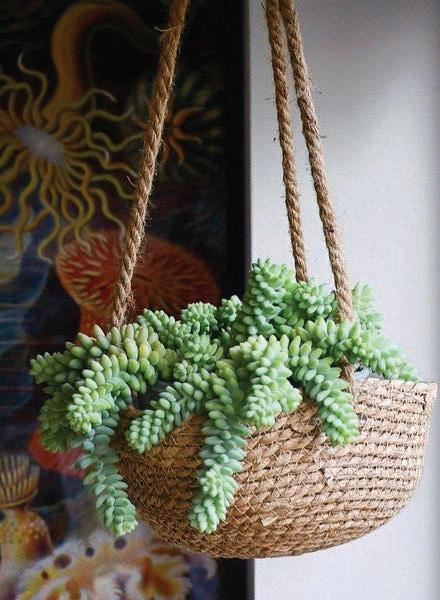
you’re looking for a pop of colour, mustard plant pots or aqua plant pots might be just what you need.

cherubsmagazine.com LIVING Cherubs Magazine | 47
If
Why Consider A HMO As An Investment Option?

An HMO can be a lucrative source of income for you if you find yourself in the fortunate position of owning or inheriting a property that is suitable for HMO conversion, or if you are looking to expand your property portfolio. The key question to ask is how?
At Reka, we know the answer because we found ourselves with a home that was perfect for HMO conversion and was, in fact, the reason behind why Reka Property Management exists. We impart our knowledge below:
1. What exactly is a HMO?
Let’s start with the basics. A HMO stands for House in Multiple Occupation. This has to be a property that is shared by multiple tenants at the same time, normally at least three people, who are not related, but do share communal facilities such as the kitchen and bathroom. Each tenant has their own separate bedroom and their own contract. Most rental payments also include their bills, so it is a clear and straightforward amount for the tenant to pay and offers them the security of knowing what they will be paying without the responsibility of dealing with bills etc.
2. What characterizes a HMO?
a. It is often the main residence of the tenant
b. Tenant pay rent
c. There are three of more tenants living there
d. They do not form a single household
3. Where, and what building, should you consider for maximum HMO investment?
Any properties that are in high rental areas are ideal as HMOs. Examples of this are areas near universities, to attract students, or major cities where the ease of renting suits many. Old police stations, halls of residences, pubs and GP surgeries make perfect HMO conversions.
However, we have decades of experience in this area and can help you navigate your way through this, especially as some councils are issuing fines of up to £20,000 for HMO licensing non-compliance.
5. How do HMOs make money?
4.
How to convert a property into a HMO.
As mentioned earlier, you will need to make each bedroom the tenant’s ‘own’ space and this normally means putting locks on each bedroom door. You may wish to configure each bedroom, move walls or convert the garage. You will also need to send the council your updated gas certificate, install and maintain smoke alarms and produce safety certificates for all electrical appliances. You may also require planning permission, so it is prudent to check before you begin any work. According to the regulations for General Permitted Development Order (GDPO) you will also need to change the use of the property from a C3 dwelling house to a HMO C4 status type and obtain a HMO license.
As you can see the list is long, time consuming and can be arduous.
Website: rekaproperty.co.uk

There is simple maths behind why a HMO with multiple tenants is more lucrative than one tenant in the whole house. More tenants, equals more rent. It is also more profitable than a standard Buy To Let for obvious reasons. We have seen cases where revenue has increased by up to 300% to 400% when compared with a standard Buy To Let.
It also spreads the risk of tenants in arrears. The old adage ‘putting all your eggs in one basket’ applies here. Renting your property to one tenant means that you are dependent on them to pay ALL the rent. It is unlikely that all your tenants default on their rent at the same time. This diversification of tenants also means that if one moves out, you still have a solid base of tenants paying their rent. The chances of everyone moving out at the same time would be unusual.
Hopefully this has given you some information around HMOs and if you are keen to convert your property to one, or wish to expand your property portfolio to include HMOs, then please do get in touch.
HOME
020 8154 3664 48 | Cherubs Magazine
If you’ve struggled to find quality tenants, reduce rental vacancies or been frustrated doing the necessary legal compliance, repairs or maintenance, then maybe the REKA Property Home Finder Scheme can help you.


This FREE service helps landlords to immediately let their properties to good tenants while providing quality accommodation for Local Housing.
Benefits to Landlords:
• property let within 10 days
• a solid two-year assured tenancy period

• fast-tracked housing benefit within days of inspecting your property

• a cash incentive up to £1000
• fully vetted quality tenants



• receive the housing benefit payment directly to you, the landlord, not to the tenants
To find out more information, call us on 0203 286 6468 or email us at lettings@rekaproperty.co.uk and quote “rent my property.”
WWW.REKAPROPERTY.CO.UK
Receive
Landlords Can Help Ease The London
Without Impacting Their
LANDLORDS WE WANT TO GIVE YOU UP TO £1000 Rent Your Property to Long-Term Quality Tenants and
a Cash Incentive How
Housing Crisis,
Rental Returns
5 Minutes with Lorna Hayward

From bringing hundreds of women together to drink, eat pizza and rave to 80s hip-hop tunes at the best ‘PIZZUP’ in town to juggling family life with her gorgeous crew, keeping her followers up to date with her funny self on the grid, and swimming in the cold English sea –all before the Hayward family wakes up. I present to you Lorna Harward – the most humble, loving person you will ever meet.
Your bedside reading at the moment is…
Um... scrolling Instagram in the dead of night, after telling myself I would get an early night? Failing that, I have a fully stocked Kindle with a tonne of books ready and waiting for me to dive into. Top of the list, is The Paper Palace.
Favourite podcast when you have five minutes’ peace?
Oooof, can I only choose one? Here’s my top three: Changes with Annie Mac, Diary of a CEO with Steven Bartlett, and Off Menu with Ed Gamble and James Acaster.
Three things you always have in your glove compartment?
Baby wipes, a pen and antibac wipes. God, how dull.
Favourite holiday memory?

I mean, there are holidays with kids and then without – both of which have delivered some epic memories. But seeing the kids’ faces when we arrived at IKOS and had our own pool was something else. Total magic.
Coffee or tea?
An oat latte please. With ‘Oatly Barista’ –
don’t offer me any other brand, it won’t cut it.
If you had to pick would you prefer singing or cooking?
Singing every day. Ideally while cooking.
Ultimate food weakness?
Chicken goujons. I just cannot say no. Dipped in mayo. Wallop!
Which album will you have on loop and never be bored with?
That is a hard one. I think it would have to be George Michael, Listen Without Prejudice
When you’re not raving in your kitchen, you are…?
...raving at PIZZUP with wonderful women.
A ‘wow’ moment in your life so far?
I think maybe a few years back, when PIZZUP was at it’s peak – looking out into a crowd of 600 women, and thinking, quite literally, wow!

What gives you instant calmness?
A glass of wine and a poo in peace. Only joking ...ish. Being in the sea. I can’t have my phone, I literally look out to nothing, and there is usually silence. There is no other feeling like it.
The next destination on your list is…
Lisbon. I’ve heard so many good things – great restaurants and people. and still great value for money.
If you needed to hear a voice of comfort, who would you call?
My best friend of 40 years, Jo, or my friend Hollie de Cruz, or my nugget Jemma.
If you could choose one superpower?
Empathy.
What language would you love to learn?
Portuguese. We spend a lot of time there, and it would be great to actually speak the local language.
How would you describe yourself?
Fun, sensitive, kind and gobby.
The mantra you live by?
That’s a tough one. It’s not so much a mantra but I try to live as honestly as I can. Sometimes that’s not always easy, as I’m a sensitive sausage but I would like to know that, as I navigate the wonder of life, that I’ve lived as honestly as I can.
020 8154 3664 LASTLY 50 | Cherubs Magazine
@mrshhayward Instagram: @thisispizzup








FRIENDLY GROUP LESSONS at Bush Hill Park Golf Club • Just £10 per session • All equipment provided • No need to pre-book • Ideal for complete beginner • Friendly, welcoming club • No special clothing required • Build fitness and skill at your own pace TWO SESSIONS PER WEEK Call the Club office on 020 3146 9890 or visit bhpgc.com Start your journey towards fun, fitness and a fabulous new passion. Join us and see what all the fuss is about!’’ Nicola Bennett, PGA Qualified Coach ’’ Women, Give Golf a Go
A magical retelling of Kipling’s classic set against the backdrop of climate change.










HHHH The Scotsman
HHHH The Herald

4 - 15 April 2023
Akram Khan Company











































































































 Written by the co-founders of Hank, Henry King & Gregg Stone
Written by the co-founders of Hank, Henry King & Gregg Stone







































 BY:
BY:




























































































 Usborne
Usborne











































































 By Karl Newson and Duncan Beedie –3-6 years
By Karl Newson and Duncan Beedie –3-6 years





 By Dav Pilkey – 7-9 years
By Dav Pilkey – 7-9 years



































 By David Almond – 10 years+
By David Almond – 10 years+








 By Ravena Guron – 13 years+
By Ravena Guron – 13 years+






 By Eve Wersocki Morris – 9-11years
By Eve Wersocki Morris – 9-11years

































































 By Victoria Selman Quercus £7.49
By Victoria Selman Quercus £7.49

 By Georgina Moore HQ £9.99
By Georgina Moore HQ £9.99


 By Bonnie Garmus Transworld £7.99
By Bonnie Garmus Transworld £7.99




 Mrs Sarah Richardson Head, Mount House School
Mrs Sarah Richardson Head, Mount House School










































 By Aimee Hart
By Aimee Hart









































 By Antonia Sanchez-Toomey
By Antonia Sanchez-Toomey





































































